#especially as abuse is often overlooked in queer relationships
Explore tagged Tumblr posts
Text
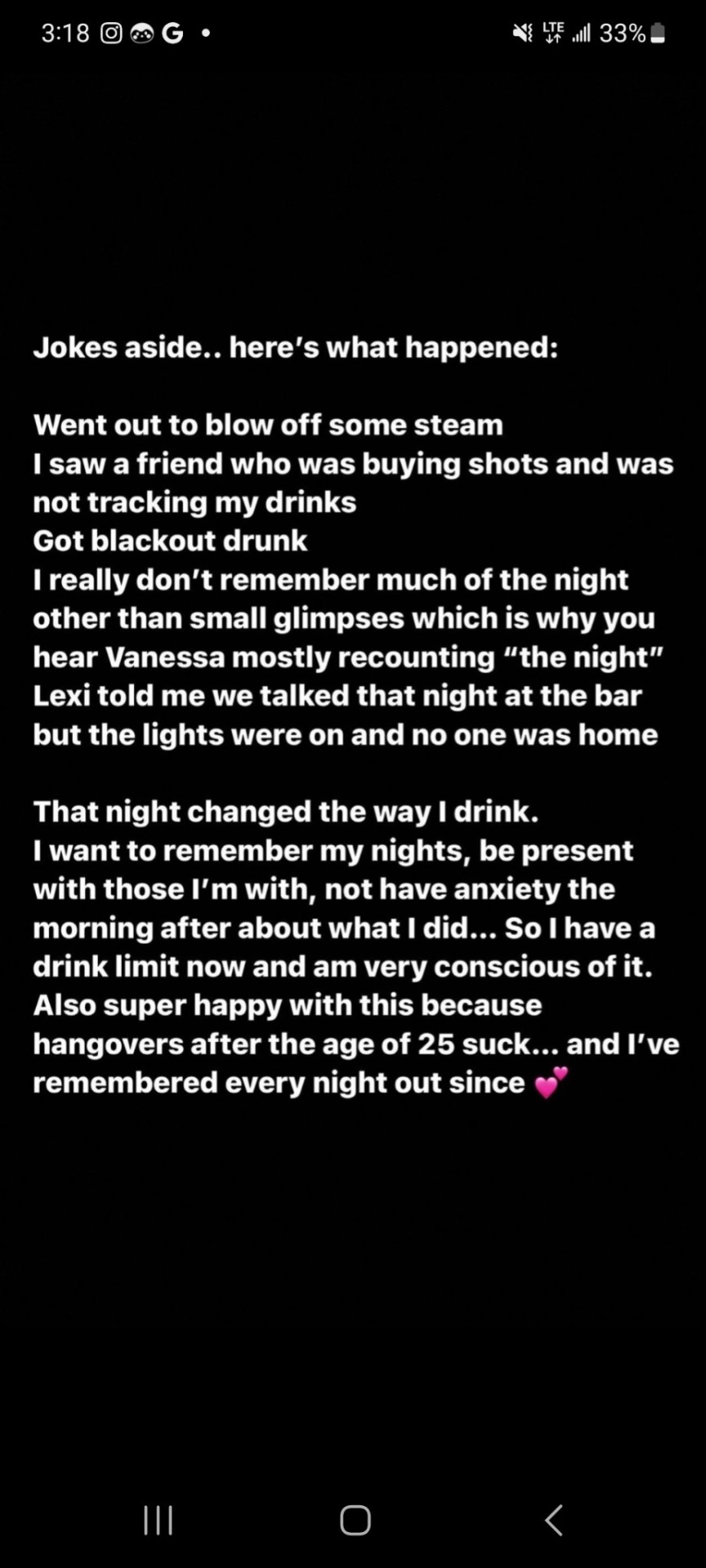
I felt very very uncomfortable on Rae's behalf every time "fingergate" came up, and this is on their Instagram under their "FAQ" and basically backs up the feelings of discomfort and feeling bad for Rae I had.
Before that night every time Vanessa alluded to them hooking up Rae would awkwardly redirect the conversation, I realise it's a grey area when both people are drinking (presumably Vanessa was also very drunk when this happened) but I definitely feel like Rae was too drunk to consent to sex. There's even a clip of her in the show that to me comes across as her trying to reassure herself that she "did consent", even though that hadn't been questioned, which to me feels like her trying to process what happened and convince that she doesn't have the "right" to feel uncomfortable about it.
I'm not surprised she and Lexi ended up breaking up, it doesn't feel like there was any space for her to healthily process what happened with Vanessa because Lexi was just too focused on her own hurt (which is understandable but doesn't make for a great start to a marriage).
I can't say without a lot more context (re: how drunk Vanessa was) if Vanessa is 100% at fault (although I have a strong suspicion), but sex can be traumatic even if you technically consented to it, and I really hope Rae heals from it (she also mentions on her story that she has a therapist so I'm glad she has space to process!).
I'm surprised the show didn't include more signposting to resources regarding sexual assault, substance abuse, and domestic abuse, to me it feels really irresponsible that they showed us so many examples of relationships with very severe issues without really commenting on it at all.
#the ultimatum queer love#this could have been a platform to address serious issues that affect relationships#especially as abuse is often overlooked in queer relationships#especially when it comes to afab queer people#i know its stupid to expect much from reality tv but hey
76 notes
·
View notes
Text
Okay random OC lore drop lol (thank you @evilwriter37 for giving me an excuse lol) - imma just talk a bit about them abstractly as an intro lol!
TW: Implied but unspecified mental health issues, family issues, referenced abuse and mention of death
- So my main character is Nix. They started as Nicky from when I was a kid watching Nicky, Ricky, Dicky and Dawn but then kinda became the personification of my intrusive, random thoughts and personal experience, and deviated so far from canon I now consider them to be an OC.
- Nix is pretty sarcastic and acts as the braincell when Aspen isn’t available, they’re definitely a trouble maker and will manipulate their way into anything but is still very caring of the people they love. They tend to lash out and can forget consequences exist sometimes (leading to a lot of different trouble). They have 3 siblings (taken from Nrdd) and overall a pretty good family but also feels overlooked or outcast from that family. They especially have a lot of conflicts with their sister.
- Robin completely lacks any social inhibitions and impulse control and she’s often the driving force for plot. Her adopted family is great but she went through a lot as a young child and lost her younger sister. I want to focus a lot of her development around the concept of family and trust. Romance is also a big part of it as she has crushes on Nix and Aspen but their feelings towards her are more complicated.
- Mischa is an absolute himbo and also a thief. He also comes from a bad home and often goes overboard trying to impress the others and their families to compensate. He also lacks an impulse control but isn’t as wild as Robin (unless talked into it) and just goes along with things, so a lot of his development is about gaining his own sense of self and learning to take control of his life and decisions.
- Aspen is a loner and doesn’t particularly care about others (not in a mean way just in a, genuinely doesn’t care what’s happening way). She moreso gets dragged into things involuntary or just because she doesn’t have anything else to do. I want to focus a fair amount on her and her mothers relationship, her mother is very sweet but is definitely hurt by her child’s lack on interest in everybody and as a result can become more overbearing on the whole group.
- It’s basically just a found family, queer coming of age story with them dealing with their traumas and challenges from mental health and being queer as a short summary
#my OCs#this is very vague and simplistic but I would need to explain mountains of lore if going into an specific detail lol#mental illness#mental health issues#implied abuse#tw implied abuse#tw death mention#death mention#oc stuff#ocs
7 notes
·
View notes
Text
Fall 2022 Anime Overview- Gundam: The Witch from Mercury
It’s time to start reviewing the anime I watched in the fall season! There’s some anime I chose to save for later, like Bocchi the Rock! (which I’m watching now and enjoying) and Raven of the Inner Palace, though I’ve heard great things about it and it’s a rare shoujosei adaptation so definitely go check it out! I might do a review of that when I do get to watch it, since it’s been overlooked this season with so many heavy hitters.
But onto what I did watch! And this one has so much to chew on it gets a whole post to itself.
Mobile Suit Gundam: The Witch from Mercury
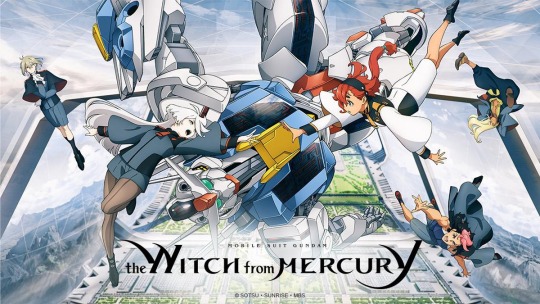
A top contender for anime of the year for me. It’s not over yet though, so I pray it sticks the landing with the next season(s).
The anime follows Suletta Mercury, a girl who arrives at a new school (and new planet!) with her giant robot Aerial. Quickly she discovers a girl named Miorine, who’s desperate to escape to Earth because her bigwig father has decreed that people can duel with their giant robots for Miorine’s hand in marriage. Mio is not at all on board with this, especially because her current fiance is an abusive jerk. Suletta confronts the jerk fiance, challenges him to a duel and...well, you can probably guess what happens, especially if you’ve seen Revolutionary Girl Utena.
(And if you haven’t, go watch it! Though look up content warnings if you’ve got specific triggers or don’t often deal with darker media. I’ve got an episode breakdown here!)

Anyway, Gundam said Gay Space Rights.
Meanwhille, Suletta’s mother, Prospera (yes, it’s a codename AND a reference to The Tempest) has a thirst for revenge after a horrible wrong was done to her by the terrible corporation Mio’s dad heads, and has secret plan brewing behind the scenes. There’s alson conflict between Earthlings and the space-faring people who are exploiting them. Meanwhile all poor Suletta wanted to do is make some friends and enjoy a couple of dates!
This anime is so good so far, and was specifically targeted for me in so many ways it’s not funny. A fun cast of characters? Well written queer girls? Shadowy parental manipulation? A protagonist who’s sweet and shy yet supremely dangerous? Good action that’s driven by good character dynamics? Lots of cool women kicking ass? Tangled relationships and tons or well written relationship drama?
I’ve definitely enjoyed a few mecha shows (like Planet With),but I tend to bounce off them, in part because I have a hard time telling what’s happening when robots are fighting and the technobabble starts flowing. That still is occasionally an issue in this show, but because the fights are so driven by character conflict and there’s clear stakes I can follow along with (like the fact using a Gundam for too long is supposed to kill you), it’s not as much as an issue as it usually is. And Gundam knew exactly how to lure me in. The second I heard the whole first episode was a Utena reference, it pulled me in and I’ve enjoyed every second since.
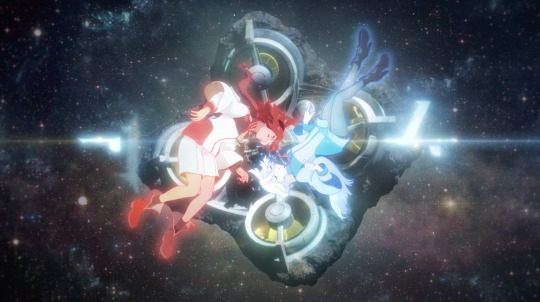
The whole first episode echoing Utena does show the show’s pedigree (the series composer actually wrote the Utena light novels) and offers a little reassurance for audiences hoping it delivers on its queer storylines But the show is no rip-off, and it it very much does its own thing from that point on. Suletta isn’t Utena, and Miorine isn’t Anthy and this is apparent from the first episode. Suletta is achingly insecure, Miorine isn’t resigned to being a bride and has a short temper and abrasive attitude. The show isn’t about gender or compulsory heterosexuality (so far), it just has a lot of complex female characters in a wide variety of roles and has a developing romance between two women as the central relationship.
But like Utena, abuse is a huge theme, but very specifically parental abuse. Both Miorine and Suletta are being used as tools by their parents in a complex political game- Miorine is aware of this (though not the full scope of it, probably) while poor Suletta is very much in the dark. The way the parents use their children is chilling, but not without complexity- there are reasons to sympathize with Prospera, even if her treatment of her daughter is unforgiveable. She feels like a person, even thought we don’t know her full story.
The show also isn’t subtle about it’s political themes!
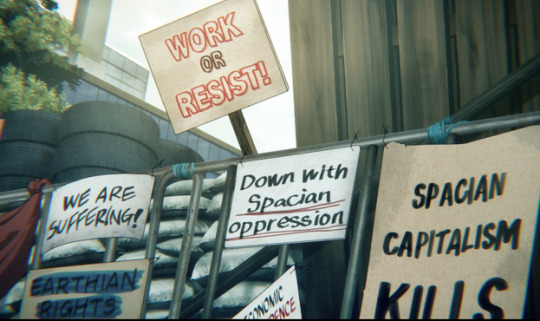
That particular conflict has been bubbling in the background, but handled well so far (there are some great, more subtle moments, like the news showing the ‘weapons’ from the protest above, which included ‘molotov cocktails’ clearly put there by the police, and...an umbrella.) But even if works have themes I like or agree with, what really matters to me is the characters and if they’re executed well. Fortunately, the show has a loveable cast whose journeys I look forward to with both excitement and trepidation.
Whether it’s the wonderfully angry Chuchu and her legendary [redacted] in episode 4, or the unpredictable arc of what started out as the show’s biggest (teenage) jerk, or seeing the funny romantic rivalries Lilique unwittingly gets entangled in, the show makes you care about these kids.
It’s also, as a side note, the best treatment of fat people I’ve seen in anime. There are a ton of plus-sized people in different roles, and they’re never made fun of (except for one mild comment in a later episode that is quickly shut down, and the person apologizes). Lilique is a chubby girl who’s allowed to just be the cute romantic one of the group and is canonically popular with the boys. Considering how anime is usually the opposite of body-positive, it’s really nice to see.

The central relationship of the show is, of course, Suletta and Miorine. And it’s a really fun relationship to follow. Even with the Utena reference and casual acceptance of gay marriage, I was a little worried about being baited by the show. But I’m happy to say I’m really satisfied with the development of the relationship so far. Both Suletta and Miorine are layered characters, and it’s great to watch the girls’ feelings grow as they miscommunicate and struggle and learn more about each other. We watch what starts as an engagement of convenience grow into a real bond, and root for these girls every step of the way. And yes, they’re bringing the gay.
But the relationship, and the show, is not without its shocking twists, and the very last minute of the last episode of this show left me a puddle on the floor and begging for more.This show can grab your heart and rip it out and you’ll thank them for it.
All I’ll say is fans of fascinating, screwed up women will be happy. I’m certainly happy! For now, at least. I like this show a lot, so I hope it doesn’t screw up it’s second season. It’s built up a lot of trust for me, but I’ve had that trust betrayed before. Such is the curse of being an anime fan, and a fan in general.
But for now, I whole heartedly recommend it, and encourage everyone to check it out! It’s got all the good things and there’s a ton to speculate on. Come freak out and theorize over that post credits scene where [redacted] with me.
#gundam witch from mercury#gundam the witch from mercury#mobile suit gundam#gundam#mobile suit gundam the witch from mercury#revolutionary girl utena#anime overview#fall 2022 anime#my reviews#recs
96 notes
·
View notes
Text
The queer community has long struggled with bisexual inclusivity. It’s even worse for bi elders.
I came out as bisexual in my 40s, and I had to learn how to grant myself permission to embrace my fluidity and attraction to people across the gender spectrum. I originally came out as a lesbian in my 30s after realizing I identified with the queer community. It was another 15 years before I met my current partner and truly recognized my fluidity. Part of this process involved overcoming the fear of being misjudged as heterosexual because of the appearance of my relationship. Fortunately, we’re seeing progress as many are freeing themselves from heteronormative boxes to identify as bisexual and live more fulfilling lives. Today, 57% of LGBTQ+ Americans identify as bisexual, per a new Gallup report. But despite representing the majority of the queer community, we are often excluded from LGBTQ+ circles while simultaneously feeling out of place in heteronormative society. In short, we feel invisible. This feeling of invisibility is evident in a study from the National Library of Medicine, which revealed that members of the Bi+ community are more likely to stay closeted. As a result, they face a greater risk for mental health issues compared to their gay and lesbian peers. This risk is even greater for Bi+ elders. A lifetime in the closet The topic of bisexuality has rarely been discussed during my 30 years as a sexuality educator – even within my field of queer studies. Historically, the voices of Bi+ individuals have been widely overlooked in LGBTQ+ spaces and advocacy efforts. This lack of visibility has limited the awareness that one can identify as something beyond lesbian, gay, or straight. While younger generations are growing up with bisexual role models and a broader acceptance of sexual fluidity, bisexual elders have less representation. Gallup’s report found that more than 68% of LGBTQ+ Gen Zers identify as bisexual compared to 26% of LGBTQ+ Baby Boomers. And according to a Movement Advancement Project report, bisexual elders are much less likely to be out than their younger counterparts. Only 18% of bisexual respondents aged 45 and older said that the most important people in their lives knew they were bisexual, compared to 32% of respondents under 45. Research also shows that bisexual older adults face unique challenges compared to their gay and lesbian peers. By not being “out” about their sexual orientation, many feel socially isolated, leading to poorer mental and physical health, elder abuse, and other negative outcomes. While there are many reasons for bisexual elders to remain closeted, one of the biggest reasons is the fact that many grew up learning misconceptions about bisexual individuals. Bisexuals face not only discrimination in the heterosexist and homophobic culture but also resistance from the rest of the queer community, as some people feel bisexuals are “sitting on the fence.” Bi+ elders need to feel included and validated within the LGBTQ+ community, regardless of what their relationships look like. Fostering inclusivity Navigating biphobia and bisexual erasure can feel stressful and isolating, especially for elders who may already experience feelings of invisibility and isolation due to their age. It takes energy to mask your authentic self, but vulnerability can also be exhausting. Feeling excluded from both LGBTQ+ and heteronormative spaces can have an emotional, spiritual, and physical impact on Bi+ elders, and it often leads to them shrinking themselves and their networks. Thankfully, we’re making progress. SAGE, the world’s largest and oldest organization dedicated to improving the lives of LGBTQ+ elders, is dedicated to improving life for those in the Bi+ community. Resources like the SAGE x HearMe app address the pressing need to create space for the Bi+ elder community by providing inclusive, safe spaces to share feelings and experiences with allied listeners. Continuing to expand access to targeted mental health support services is crucial to address the specific needs of the Bi+ community. To support… http://dlvr.it/T60GrT
0 notes
Text
Queer Community and Mental Health
The Lesbian, Gay, Bisexual, Transgender, and Queer (LGBTQ+) community accounts for one of the major minority communities globally. Their major concerns entail traumatic experiences and the subsequent loss, which are essentially misconceived or overlooked. They experience persistent barriers for voicing their needs and the struggle amplifies especially in the realm of accessing mental healthcare. While many countries have progressed in designing favorable policies, there exists a wide gap in identifying the challenges faced by them in accessing the existing mental health services. This blog focuses on the queer community, their mental health and the issues they face to access mental care facilities.
WHAT DOES QUEER MEAN?
Queer is an umbrella term used to refer to a wide variety of gender identities and sexual orientations. The term LGBTQ stands for Lesbian, Gay, Bisexual, Transgender and Queer. Every person has a sexual orientation and identity.
A BRIEF HISTORY OF THE QUEER COMMUNITY.
During the early periods, homosexuality was classified as a mental disorder. In the late 1960s, activists reclaimed a decades-old slur, “gay.” Throughout the 20th century, same-gender attraction and sexual activity was largely outlawed, and this and other slurs that denigrated LGBTQ+ people were common. “gay” was eventually embraced by men who defied the status quo with open expressions of same-gender love.
It took nearly two more decades for the World Health Organization to recognize homosexuality as normal.
CHALLENGES FOR QUEER PEOPLE.
For many in the LGBTQ community, coming out can be a difficult or even traumatic experience. It can be difficult to cope with the after effects of something as personal as one’s identity and sexual orientation from family or close friends.
Homophobia, biphobia, transphobia, bullying and feeling identity-based shame is often traumatic for people.The LGBTQ community faces many forms of discrimination, including: labeling, stereotyping, denial of opportunities or access, and verbal, mental and physical abuse. They are one of the most targeted communities by perpetrators of hate crimes in the country.
These people often end up with unhealthy coping strategies, loneliness, isolation, tension in family relationships and they also stress about the coming out process.
QUEER COMMUNITY IN INDIA.
India being so diverse and holding the name for being accommodating fails to welcome queer communities and is often seen as a taboo topic. They are rather ridiculed and brutally subjected to judgment and abuse for expressing who they are internally. More Indian teenagers than ever before may accept homosexuality and queer identities today, yet acceptability within the walls of families, homes, and schools still presents a challenge for LGBTQ persons.
Mental health problems are also still a taboo in our country. We may be advanced in technology but we still have a lot to achieve in terms of being humane and respectable towards one another. Fear of being judged and isolated pushes people to avoid treatment and suffer in silence. Though we have countless campaigns and rallies to spread awareness, it is often overlooked and not given much importance. The youth of our country however strives day and night to bring a change to the ongoing miserable scenario in the country.
QUEER COMMUNITY AND MENTAL HEALTH.
Many people in this community struggle in silence and they sometimes even attempt suicide. The approach to sexual orientation and gender identity in mental health care often groups together anyone in the queer community, when these communities are considered at all. This method can be problematic as each sub-community faces unique challenges, rates of mental illness and experiences. What the transgender community may be going through wouldn’t be the same as what the others who are part of the queer community may be going through.
LGBTQ youth also experience greater risk for mental health conditions and suicidality. This is the period in their lives when they discover who they truly are and who they are sexually inclined to. This is also the time when their hormones start acting up, they may be prone to stress and mood swings. Hiding themselves and their emotions can cause mental conflict and distress which may go out of hand.
Interpersonal relationships may also get affected when they reveal their gender identity. Their peers may not be open to welcoming something so different to what they are used to and may start avoiding or isolating them. This can again affect their mental health adversely. LGBTQ youth are more than twice as likely to report experiencing persistent feelings of sadness or hopelessness than their heterosexual peers.
IMPACT OF EXCLUSION AND DISCRIMINATION
Lesbian, gay, and transgender people are severely impacted by exclusion and prejudice. This has led to what is stated below:
Earlier school abandonment
Leaving the family and home
Lacking access to regular employment and having fewer possibilities than others
Being shunned and alone in the neighbourhood
Unable to access a range of services and unaware of their rights
INTERVIEW WITH S.
The following includes an interview featuring a trans man 'S', where he highlights the main aspects of the LGBTQ+ community and his own mental health growing up.
1. When was the first time that you were mentally aware of the fact that you are a part of the queer community?
- “It was during the covid era when I was left alone with my thoughts to myself. But id say that I was unconsciously aware ever since I was 3 years old because I never really fit into the binary system designed for genders by the society. I always felt more included in the masculine side rather than the feminine one. I remember verbally stating to everyone that I wanted to be a boy when I grow up. I never wanted to associate myself with the female stereotypes or gender biases.”
2. how did growing up, and not being able to express yourself affect you and your mental health?
- “I only ever came in touch with my mental health when the celebrity Sushanth Singh Rajput had passed away and there was a rise in the importance of mental health. I always felt myself dissociating when growing up, someone would address me as a girl. I never felt comfortable or myself in my own body which is supposedly your home.”
3. how old were you when you first felt comfortable coming out to someone?
- “I was 13, the first person I came out to was my sister and this has happened only because she was once discussing about the queer community to me and that was when I started looking more into it and it felt like for once everything made sense in my life and that there is nothing wrong with me. This made me want to open up to her about it.”
4. despite India’s supreme court ruling in favor of the LGBTQ+ community, have you ever felt safe expressing yourself in the economy?
- “it completely depends on the region or the people that I am with. Especially Tamil Nadu’s high court has always favored the queer community and has released a lot of encouraging stuff for the queer community. But, political progress ≠ social progress. So, despite all of that I haven’t felt comfortable coming out in this economy. It is important to know that bringing in laws is one thing and making people follow it and respect it is another thing. Although the judiciary is favourable to the queer community I don’t think it is safe for queer people unless they're in a queer space.”
5. Why do you think that there is a stigma towards the queer community in?
- “I think it is because of homophobia disguised in the name of religion. India is predominantly a Hindu country and nowhere in Hinduism it is mentioned that queer people should be discriminated against. In fact, it opens its arms towards queer people for all that I know. I would mainly highlight the point that Indians are generally intolerant towards change. Since their cultural beliefs are so deeply rooted in their system, they aren’t ready to face this change that has always existed but has been brought more light in this generation.”
To conclude this interview with ‘S’, regardless of whether it is mental health or the queer community, being raised in an environment that is more accepting of change and various perspectives allows the individual to do the same. As our interviewee has said that for both his mental health and getting aware of his gender, what helped him was when the society around him brought some light into the topic. Hence, it is a crucial part as a society to erase the stigma and bring in change.
WHAT CAN BE DONE?
1. Listen to LGBTQ youth.
2. Be a role model for kindness and inclusion.
3. Show young people that they can be genuine around you.
4. Stay informed and spread awareness.
We should start educating people about this from an early age. That does not mean we provide children with classes about the queer community in school. All we have to do is raise children who are open and receptive to change and something different. We need to teach them to be accepting of one another and embrace people who are different from them. We should provide a safe space for them to share their feelings and thoughts about a wide variety of things free from judgment. We must start this movement to create a better, secure and warm environment for our children to express themselves and live according to their free will, embracing life with a clear and peaceful mind. It starts with us and the sooner we realize that the better.
In conclusion, despite the gender or the sexuality a person identifies themselves with, their mental health matters greatly given that recently, a lot of people have been taking their lives due to various mental health issues. It is essential that we make sure to act in inclusive ways and make them feel heard. Though there has been much debate on the subject, we think everyone should be treated with utmost equality, just because they are different does not mean they should be treated in any such disparaging ways.
0 notes
Text
okay omg. so
Stewy’s parents were members of the upper middle-class, highly educated elite who came to the US in the early eighties to avoid the impact of the Iranian Revolution.
Stewy’s father is in banking and his mother is an academic (international relations?). They lived in Massachusetts for a year or so when Stewy was a toddler but eventually settled in New York for his father’s business. His dad is retired now, but his mom still teaches part-time at Barnard. Stewy grew up in a bilingual household, with both parents pretty much fluent in English. He speaks Farsi with his family.
Stewy has an older sister named Shirin, she is nine years his senior. They were both born in Tehran (where the family lived in an affluent neighbourhood), but they immigrated when Stewy (Sadegh, if we’re using his Farsi name) was still just an infant.
Stewy had a relatively stable childhood, with lots of money spent on his education and development. His relationship with his mom is good, although not as close as he might have liked as a child. He was outrageously spoilt by her, but she was often too busy with work to give him much quality time. She is someone he still goes to for advice, as she’s pragmatic and wildly intelligent.
He loves his sister, although their relationship has had its ups and downs. As children, Shirin was (rightfully) resentful of Stewy - he got the biggest bedroom, the best cuts of meat at dinner time, and was their parents’ ‘little prince’, whereas she (despite being smarter and more well-behaved) was so often overlooked and underestimated because of her gender. She gently bullied Stewy a lot when they were kids, and they were very competitive, especially as teens.
As adults, they have a good relationship, although they don’t see each other so often these days - Shirin trained as a lawyer, moved to Chicago for work, and now lives there with her husband and kids. She has two sons and a daughter, Stewy’s nephews and niece.
His relationship with his dad is more strained. His dad is quite similar to Logan (though nowhere near as emotionally abusive) and he had big expectations for his children, especially Stewy as his only son. Despite becoming very Westernised in a lot of ways, his dad is still firmly, proudly Muslim, and raised his kids with Islamic traditions and values. His parents and sister still practice Islam, but Stewy stopped as a teenager.
As you mentioned, Stewy being 40 and still unmarried has created some tension with his family, especially his dad. His dad - like Logan - often criticised Stewy for not being masculine enough. He, like Logan, disapproved of the relationship between Stewy and Kendall.
Stewy was always a bit of a clown and a rebel, and - especially as a teenager - he didn’t enjoy living in a quite a strict Islamic household. At fifteen, he started staying out late, drinking and smoking pot (with Kendall) and these nights often ended with both of them getting chewed out by Stewy’s dad.
Now, they rarely see one another except for on birthdays and holidays (Thanksgiving and Eid). Stewy’s dad put so much pressure on him throughout his childhood - to do well at school, to succeed at college, to do sports, to learn piano, to get married and be a ‘real man’, and now Stewy feels really distanced from him. He’ll go for lunch with his mom sometimes, but never his dad. He knows, deep down, that his dad still doesn’t really approve of him, his life, and his (queer) social circle.
Overall, he appreciates his family for giving him a good education and a privileged life but - like Kendall - he grew up always feeling as if he could never be the son his parents wanted. He rarely talks about his family, except to the closest of his friends (basically just Kendall). He prefers to distance himself from them and, instead, enjoy the life he’s created for himself.
please reblog with ur headcanons for stewy’s family bcuz i’ve heard a lot of different ideas and need to hear more
12 notes
·
View notes
Text
disability in the Six Of Crows Duology; an analysis of Kaz Brekker, Wylan Van Eck, and the fandom’s treatment of them.
****Note: I originally wrote this for a tiktok series, which im still going to do, but i wanted to post here as well bc tumblr is major contributor to what im going to talk about
CW: ableism, filicide, abuse
In the Six of Crows duology, Leigh Bardugo delicately subverts and melds harmful disability tropes into her narrative, unpacking them in a way that I, as a disabled person, found immensely refreshing and…. just brilliant.
But what did you all do with that? Well, you fucked it up. Instead of critically looking at the characters, y’all just chose to be ableist.
For the next few videos paragraphs im going to unpack disability theory (largely the stuff surrounding media, for obvious reasons) and how it relates to Six Of Crows and the characterization of Kaz Brekker and Wylan Van Eck, then how, despite their brilliant writing, y’all completely overlooked the actual text and continuously revert them to ableist cariactures.
Disclaimer: 1. Shocker - i am disabled. I have also extensively researched disability theory and am very active in the disabled community. Basically, I know my shit. 2. im going to be mad in these videos this analysis. Because the way y’all have been acting has been going on for a long ass time and im fuckin sick of it. I don’t give a shit about non-disabled feelings, die mad
Firstly, I’m going to discuss Kaz, his play on the stereotypical “mean cripple” trope and how Bardugo subverts it, his cane, and disabled rage. Then, I am going to discuss Wylan, the “inspiration porn” stereotype, caregivers / parents, and the social model of disability. Finally, I will then explain the problems in the fandom from my perspective as a disabled person, largely when it comes to wylan, bc yall cant leave that boy tf alone.
Kaz Brekker
Think of a character who uses a cane (obviously not Kaz). Now, are they evil, dubiously moral, or just an asshole in general? Because nearly example I can think of is: whether it be Lots’O from Toy Story, Lucius Malfoy, or even Scrooge and Mr.Gold from Once Upon A Time all have canes (the last two even having their canes appear less and less as they become better people)
The mean/evil cripple trope is far more common than you would think. Villains with different bodies are confined to the role of “evil”. To quote TV Tropes, who I think did a brilliant job on explaining it “The first is rooted in eugenics-based ideas linking disability or other physical deformities with a "natural" predisposition towards madness, criminality, vice, etc. The Rule of Symbolism is often at work here, since a "crippled" body can be used to represent a "crippled" soul — and indeed, a disabled villain is usually put in contrast to a morally upright and physically "perfect" hero. Whether consciously on the part of the writer or not, this can reinforce cultural ideas of disability making a person inherently inferior or negative, much in the same way the Sissy Villain or Depraved Homosexual trope associate sexual and gender nonconformity with evil. ”
Our introduction to Kaz affirms this notion of him being bad or morally bankrupt, with “Kaz Brekker didn’t need a reason”, etc. This mythologized version of himself, the “bastard of the barrel” actively fed into this misconception. But, as we the audience are privy to his inner thoughts, know that he is just a teenager like every other Crow. He is complex, his disability isn’t this tragic backstory, he just fell off a roof. It’s not his main motivation, nor does he curse revenge for making him a cripple - it is just another part of who he is.
His cane (though the shows version fills me with rage but-) is an extension of Kaz - he fights with it, but it has a purpose. Another common thing in media is for canes to be simply accessories, but while Kaz’ cane is fashionable, it has purpose.
The quote “There was no part of him that was not broken, that had not healed wrong and there was no part of him that was not stronger for having been broken.” is so fucking powerful. Kaz does not want nor need a cure - its said in Crooked Kingdom that his leg could most likely be healed, but he chooses not to. Abled-bodied people tend to dismiss this thought as Kaz being stubborn but it shows a reality of acceptance of his disability that is just, so refreshing.
In chapter 22 of SOC, we see disabled rage done right - when he is called a cripple by the Fjerdan inmate, Kaz is pissed - the important detail being that he is pissed at the Fjerdan, at society for ableism, not blaming it on being disabled or wishing he could be normal. He takes action, dislocating the asshole’s shoulder and proving to him, and to a lesser extent, himself, that he is just as capable as anyone else, not in spite of, but because he is disabled. And that is the point of Kaz, harking back to the line that “there was no part of him that was not stronger for having been broken”.
I cried on numerous occasions while reading the SOC duology, but the parts I highlighted in this section especially so. I, as many other disabled people do, have had a long and tumultuous relationship with our disability/es, and for many still struggle. But Kaz Brekker gave me an empowered disabled character who accepts themselves, and that means the world to me.
Keeping that in mind, I hope you can understand why it hurts so much to disabled people when you either erase Kaz’s disability (whether through cosplay or fanfiction), or portray him as a “broken boy uwu”, especially implying that he would want a cure. That flies in the face of canon and is inherently fucking ableist. (if u think im mad wait until the next section)
Next, we have Wylan.
Oh fucking boy.
I love Wylan so fucking much, and y’all just do not seem to understand his character? Like at all? Since this is disability-centric, I’m not going to discuss how the intersection of his queerness also contributes to these issues, but trust me when I say it’s a contributing factor to what i'm going to say.
Wylan, motherfucking Van Eck. If you ableist pricks don’t take ur fucking hands off him right now im going to fight you. I see Wylan as a subversion another, and in my opinion more insidious stereotype pf disabled people - inspiration porn.
Cara Liebowitz in a 2015 article on the blog The Body Is Not An Apology explains in greater detail how inspiration porn is impactful in real life, but media is a major contributing factor to this reality. The technical definition is “the portrayal of people with disabilities as inspirational solely or in part on the basis of their disability” - but that does not cover it fully.
Inspiration porn does lasting damage on the disabled community as it implies that disability is a negative that you need to “overcome” or “triumph” instead of something one can feel proud of. It exploits disabled people for the development of non-disabled people, and in media often the white male protagonist. Framing disability as inherently negative perpetuates ideals of eugenics and cures - see Autism $peaks’ “I Am Autism” ad. Inspiration porn is also incredibly patronizing as it implies that we cannot take care of ourselves, or do things like non-disabled people do. Because i stg some of you tend to think that we just sit around all day wishing we weren’t disabled.
Another important theory ideal that is necessary when thinking about Wylan is the experience of feeling like a burden simply for needing help or accommodations. This is especially true when it comes to familial relationships, and internalized ableism.
The rhetoric that Wylan’s father drilled into his head, that he is “defective”, “a mistake”, and “needs to be corrected”, that he (Jan) was “cursed with a moron for a child” is a long held belief that disabled people hear relentlessly. And while many see Van Eck’s attempted murder of Wylan as “preposturous” and overall something that you would never think happens today - filicide (a parent murdering their child) is more common than you would like to believe. Without even mentioning the countless and often unreported deaths of disabled people due to lack of / insufficient / neglectful medical care, in a study on children who died from the result of household abuse, 40 of 42 of them (95%) were diagnosed with disabilities. Van Eck is not some caricature of ableist ideals - he is a real reflection on how many people and family members view disability.
Circling back to how Wylan unpacks the inspiration porn trope - he is 3 dimensional, he is not only used to develop the other characters, he is just *chefs kiss* Leigh, imo, put so much love and care into the creation of Wylan and his story and character growth that is representative of a larger feeling in the disabled community.
That being said, what you non-disabled motherfuckers have done to him.
The “haha Wylan can’t read” jokes aren’t and were not funny. Y’all literally boiled down everything Wylan is to him being dyslexic. And it’s like,,,, the only thing you can say about him. You ignore every other part of him other than his disability, and then mock him for it. There’s so much you can say about Wylan - simping for Jesper, being band kid and playing the fuckin flute, literally anything else. But no, you just chose to mock his disability, excellent fucking job!
Next up on “ableds stfu” - infantilization! y’all are so fucking condescending to Wylan, and treat him like a fucking toddler. And while partly it is due to his sexuality i think a larger portion is him being disabled. Its in the same vein of people who think that Wylan and Jesper are romantically one sided, and that Jesper only kind of liked Wylan, despite the canon evidence of him loving Wylan just as much. You all view him as a “smol bean”, who needs protecting, and care, when Wylan is the opposite of that. He is a fucking demolitions expert who suggested waking up sleeping men to kill them - what about that says “uwu”. You are treating Wylan as a burden to Jesper and the other Crows when he is an immensely valuable, fully autonomous disabled person - you all just view him as damaged.
And before I get a comment saying that “uhhh Wylan isn’t real why do you care” while Wylan may not be real, how you all view him and treat him has real fucking impacts and informs how you treat people like me. If someone called me an “uwu baby boy” they’d get a fist square in the fucking jaw. Fiction informs how we perceive the world and y’all are making it super fucking clear how you see disabled people.
Finally, I wanted to talk about how the social model of disability is portrayed through Wylan. For those who are unaware, the social model of disability contrasts the medical model, that views the disability itself as the problem, that needs to be cured, whereas the social model essentially boils down to creating an accommodating society, where disability acceptance and pride is the goal. And we see this with Wylan - he is able to manage his father’s estate, with Jesper’s assistance to help him read documents. And this is not out of pity or charity, but an act of love. It is not portrayed as this almighty act for Jesper to play saviour, just a given, which is incredibly important to show, especially for someone who has been abused by family for his disability like Wylan, that he is accepted.
Yet, I still see people hold up Jesper on a pedestal for “putting up with” Wylan, as if loving a disabled person deserves a fucking pat on the back. It’s genuinely exhausting trying to engage with a work I love so much with a fandom that thinks so little of me and my community. It fucking shows.
Overall, Leigh Bardugo as a disabled person wrote two incredibly meticulous and empowered disabled characters, and due to either lack of reading comprehension, ableism, or a quirky mix of both, the fandom has ignored canon and the experiences of disabled people for…. shits and giggles i guess. And yes, there are issues with the Grishaverse and disability representation - while I haven’t finished them yet so I do not have an opinion on it, people have been discussing issues in the KOS duology with ableist ideals. This mini series was no way indicative of the entire disabled experience, nor does it represent my entire view on the representation as a whole. These things need to be met critically in our community, and talked about with disabled voices at the forefront. For example, the limited perspective we get of Wylan and Kaz being both white men, does not account for a large portion of the disabled community and the intersection of multiple identities.
All-in-all, Critique media, but do not forget to also critique fandom spaces. Alternatively, just shut the fuck up :)
happy fucking disability pride month, ig
#soc#six of crows#kaz brekker#soc kaz#kaz talk tag#kanej#grisha#grishaverse#ketterdam#leigh bardugo#bardugo#crooked kingdom#ck#wylan#wylan van sunshine#wylan supremacy#jesper x wylan#wesper#jesper fahey#shadow and bone#wylan van eck#jan van eck#ableism#ableist bullshit#ableist slurs#disability#disability pride month#i will punch you in the face#el oh el#laugh out loud
2K notes
·
View notes
Text

Article by Amelia A. J. Foy
Happy Bisexual Visibility Day! On this day, we celebrate ourselves as bisexual people in a world that often overlooks our community in both a heteronormative sense and as a part queer culture. Despite the B in LGBTQ+ standing for bisexual and our long history in the fight for queer liberation, we are often left out of narratives surrounding LGBTQ+ issues and experiences. For example, you’ve probably never seen a coming-of-age story where the character is discovering their bisexual identity in the same way you have movies like Love, Simon or the plethora of other straight films about young romance. This is because bisexuality is often framed as being both gay and straight; however, the issues our community faces are unique to bisexual+ people (those who are multi-gender attracted) and, whilst I definitely saw myself in Love, Simon and cried my eyes out, it did not wholly encapsulate my experience.
Seeing actual bisexual representation in the media now warms my heart, but it is few and far between: actually getting it right is even rarer. Sure, Glee had a bisexual character when I grew up watching it, but her ex-girlfriend then gets with a lesbian and says, “now I don’t have to worry about my girlfriend straying for penis”, so it didn’t really do much for me. Especially as a young, confused teenager.
This is why we need visibility. Now, visibility is not the be-all-end-all of our liberation or acceptance into culture. Visibility can often come at the price of facing more danger and being hypervigilant, and places the onus of acceptance on marginalised people not “putting themselves out there” more. Many bisexual people also aren’t visible for many reasons, one of which being for their own safety, and another being that we are often read as either gay or straight based on our partnering at the time. It erases a massive part of our experience.
However, this is why visibility is particularly important to the bisexual community. Bi-erasure and invisibility is linked to the rates of poor mental health within our community specifically, because it is a unique challenge we face. Then, if we come out, we face exclusion from queer and heterosexual spaces alike, and social exclusion is also correlated with worse mental health. In fact, bisexual people face higher levels of anxiety, depression and suicidality than not just heterosexual people, but lesbian and gay people, too. We also encounter higher rates of sexual assault/harassment, which is particularly problematic considering many of our stereotypes centre on our “greediness” and “promiscuity”. Yet, despite a plethora of research showing us to be the most vulnerable sexual minority community, our issues are neglected, belittled and written off. Most people don’t even know how much we are suffering.
Growing up bisexual was a big confusing mess as a result. I came out seven years ago, aged 14, to the immediate reaction of “it’s a phase” from my family, meaning that I had to navigate this self-discovery on my own, quietly. Throughout the next few years, I encountered a slew of biphobic remarks and experiences:
“I turned you bisexual.” Ah, yes, I couldn’t have liked girls for ages and repressed it due to compulsory heterosexuality. That would be ridiculous. It must be your godlike attraction.
“I wouldn’t marry a bisexual because what if they wake up and want a man?” I was definitely about to propose to you in the middle of history class, so thanks for letting me down gently.
“But you’ve never dated girls before.” My nerdy ass hadn’t dated anyone before. Thinking back on this one, how weird is it to demand a 14- or 15-year-old to have a dating history to idenitify as bisexual?
“You’re too young to know.” Cool, but all the straight kids know they’re heterosexual from the jump, right?
Being in a queer toxic relationship and having no idea where to go because there were no resources for LGBTQ+ students and I had no adult support network because I was bisexual in a queer relationship… Can I get a yikes?
“Is the correct term bisexual or desperate?” Men get so mad when you’re bisexual and not into them, don’t they?
“Bisexuals are just confused.” Yes! We are! Coming out as a sexuality that is severely underrepresented and misrepresented, even in LGBTQ+ spaces, and being told by these same spaces all the ways in which you don’t belong, really sucks! It makes you doubt yourself! I was confused, and I couldn’t express it out of fear of validating this stereotype!
“I don’t think you’re really bisexual.” Well, we’ve been lipsing for months so that sounds more like a you problem to me.
“Want a threesome?” If I wanted disappointing sex I’m sure I could find it somewhere else, thanks.
Right at the start, these kind of things sent me way down into existential crisis and had me questioning my identity. I was alone, scared and confused. I felt an overwhelming pressure to just know my identity and an overwhelming pressure to fit in, and I had no resources to help me.
Bisexual teens are less likely to have access to safe spaces and supportive adults than lesbian or gay people, and that was definitely my experience. If I had just one adult to talk to at school - a counsellor or someone who ran an LGBTQ+ club, anyone - I could have avoided a lot of toxic situations and had more confidence in who I was.
Now that I have a social support network and I’m an out and proud adult, it doesn’t bother me too much. But I know how badly these kind of things can impact you, especially as a young person, and so does the research. If you are a young bisexual person, please know that you are not wrong, not indecisive, not greedy and you do not deserve any level of abuse or belittlement. I support you and there are places and spaces that will support you, too. Here’s a few online places (sorry for the UK focus!):
Bi.org
biresource.org
londonbipandas
Bicommunitynews.co.uk - particularly this page to find local bi+ meet-ups and events in the UK & Ireland
#bisexuality#lgbtq community#bi#lgbtq#support bisexuality#bisexuality is valid#lgbtq pride#bi tumblr#pride#bi pride#bi youth#bisexual youth#bisexual kids#bisexual child#bisexual children#bisexual teens#bi teens#bisexual education#bisexual nation#bisexual info#bisexual facts#biphobic gay people#bi+#support bisexual#support bisexual youth#respect bisexual youth#lost youth#safe space
32 notes
·
View notes
Text
A is for Asexuals and Aromantics and Agender people.
A is not for Allies. Allies don't get a letter.
To break it down in no particular order:
Allies are, by the very definition of the word ally itself, not members of the marginalized group. They do not suffer from the systemic oppression and erasure that affects every member of the group.
Asexual, Aromantic, and Agender are primary identities; Ally is not. The word ally describes a relationship to another group of people (see above), not a identity that stands on its own.
Priority belongs to actual members of the marginalized community, along with their needs and lived experiences. Prioritizing Allies contributes to the exclusion and erasure of Asexuals, Aromantics, and Agender people.
-Allies don't suffer from the systemic oppression and erasure that affects everyone in the marginalized group.
They don't have people telling them that allyship is not a real thing, that its all in their head, that it's a kind of mental illness or physical debility, that they need to have their allyship corrected with medication or therapy or *corrective violence*. They do not have those same people telling them in the next breath that their allyship must be a trauma response to abuse in their past. They are not harassed by doctors and medical professionals as if allyship is a health problem they are neglecting.
They don't have people telling them that they'll grow out of it, that they're only being immature, that if they tried not being an ally they'd see what they've been missing all this time and that would be the end of that. They don't usually get lectured so much about how they're only pretending in order to be the center of attention (well, they do, but for different reasons) or because they think they're so dmn special and better than everyone else.
Whereas a/gray/demisexuals *do* go through all of that (and much more)-
*and a/gray/demiromantics go through a lot of erasure and harassment of their own*-
and agender people have their own erasure and harassments as well-
and quite often within the lgbtqia+ community itself.
We show up to pride parades and not only find we've been forgotten again but also get flak for showing up because apparently we're not real and therefore can't be queer. We get left out of so many videos, memes, meetings, parades, conversations. We get left out, erased, and harassed by our own group, in addition to the systemic oppression faced by all in the lgbtqia+ community.
See: Asexual oppression
To repeat: Allies don't get a letter because they do not face the *systemic oppression* that the marginalized group itself does. Allies don't get a letter because they don't suffer from *erasure*.
White allies of PoC do not suffer from the systemic racism that PoC do. Feminist men do not suffer from institutionalized misogyny. Neurotypical allies do not suffer from rampant ableism.
Nobody's overlooking the stories and needs of white/ straight/ neurotypical/ male-identifying people. This very debate highlights how people are prioritizing non-LGBTQIA+ allies and erasing asexuals, aromantics, and agender people.
-Asexual, Aromantic, and Agender are primary identities; Ally is not.
Who is an ally? They are people outside of the marginalized group, who support the group. Without that group, or the context of that group, describing a person as an ally is nonsensical. They were people (probably straight/ cis/ dyadic/ heteronormative/ gender dimorphic people) before they supported the marginalized group. A person's primary identity is not Ally. Being an ally is not a core aspect, or even a fixed aspect, of who a person is.
Plus, I would still identify myself as and consider myself to be ace, aro, and agender even if there were no systemic oppression leveled against me any longer whereas nobody would be termed an ally in that case because there would be no systemic oppression and erasure to fight against, hence no allies in that fight.
-Priority belongs to actual members of the marginalized community, along with their needs and lived experiences.
I try to be ally to people of color *and because of that* I know that their community should be centered around them and their needs, and that non-PoC allies *are already at the table*- they were at the table first! If anything, over half the table belongs to them, and allies should be offering the more marginalized and oppressed people a couple of their own seats.
Black History Month should center on the lived experiences of PoC, not of white abolitionists. Women's History Month should center on the lived experiences of women, not men who gave women the vote. Autism Acceptance Month should center on the lived experiences of autistic people, not neurotypical cheerleaders.
And LGBTQIA+ Pride Month should center on those marginalized and systematically oppressed on the grounds of gender and sexuality, not their allies.
"But Allies are good"
I get that people think allies should be given credit for, well, for being allies. Sure. But that doesn't mean they get a letter of their own in the very acronym that names the marginalized group. You know, the marginalized group they are allies with but technically can't belong to. Especially when giving allies a letter erases minorities who are still struggling to be recognized as members of the marginalized group.
So, good for those allies for being brave and decent human beings? Is there an expectation here that allies want payment for treating us with decency and respect? Let's remember that the allies are in a comparably privileged position, if anyone is going to be giving out gifts. No good ally is going to ask for a gift that further marginalizes and erases members of the community; no good ally is going to think they are owed payment for being a good ally.
What if, what if, brave and decent human beings were the norm? Would we still need to give them a letter? (see above: if there were no more systemic oppression against the LGBTQIA+ community, such brave and decent human beings wouldn't even be called allies anymore.)
What if it is highly problematic to say that acting as a brave and decent human being is a special thing not to be expected from the rest of society? What if it is highly problematic to indicate that brave and decent people belong to the marginalized and oppressed group by default?
Especially when it contributes to the erasure of people so marginalized they are still fighting to be acknowledged by the marginalized group itself?
tl;dr-
It's the asexuals, aromantics, and agender people here who need to finally be allowed full membership and representation in their own community.
The letter A is for them.
#*this is an older post but i find we sometimes still need a reminder in the year of our current era 2021*#a is for ace aro agender#a is for#actually ace#actually arospec#actually agender#actually asexual#a is not for ally#happy pride 🌈#no exclusionary bullshit on my tumblr#terf rhetoric be damned
21 notes
·
View notes
Text
TV of 2020
1) I May Destroy You

I May Destroy You might not have been written during the pandemic, but when it arrived in June it felt like the sort of complicated, cathartic show that could have been. Detailing one woman’s experience of rape and its aftermath, Michaela Coel (who wrote every episode) continually found rich narrative avenues in which to explore her characters’ individual experiences of sexual assault and consent. If that makes the series sound concept-driven, it always placed its characters first; the push-and-pull between Arabella, Terry and Kwame is key to the ways in which Coel’s tender, curious writing is able to explore power dynamics within relationships, friendships and hook-ups. Other, lesser shows that are this deliberately open-ended might feel opaque: it’s testament to the show’s confidence of voice that isn’t the case here.
2) Normal People

Like plenty of others, I binged the entire series of Normal People in a weekend, although one of its many pleasures is how Sally Rooney and Alice Birch’s adaptation teases out the episodic nature of the former’s bestseller. From Connell’s early days at university, to a Tuscan holiday turned sour, and an exchange year in Sweden, Normal People was about the ways in which the people we love move in and out of our lives over the years. It wasn’t immune to mis-steps (the show draws something of a crude line between the abuse Marianne suffers at home and what she seeks out in romantic partners), but the sheer emotional heft of the show was undeniable, nowhere less so than Paul Mescal’s floodgate-opening performance in Episode 10.
3) Adult Material
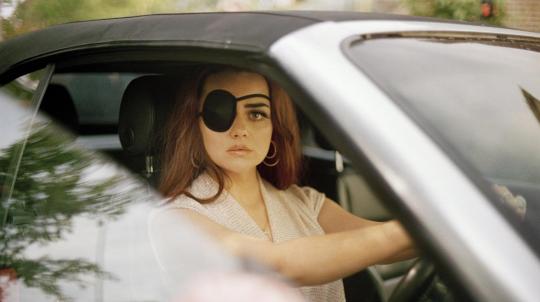
Perhaps one of the year’s most overlooked shows, Adult Material follows Hayley Burrows as she attempts to balance life as the harassed mother-of-three and the twilight years of her career as adult performer Jolene Dollar. The slyly comic edge of the first episode is quickly eroded after Jolene becomes embroiled in the abuse of another actor on-set. A stark portrait of alcohol abuse and loneliness, it’s also a sharp indictment of how little the so-called ‘culture wars’ surrounding pornography are meaningfully impactful on sex workers themselves. Hayley Squires gives the sort of white-hot star performance usually reserved for 90s Hollywood rom-coms, a veneer of frustration and resignation overlaying even her character’s most abrasive moments.
4) Cook, Eat, Repeat
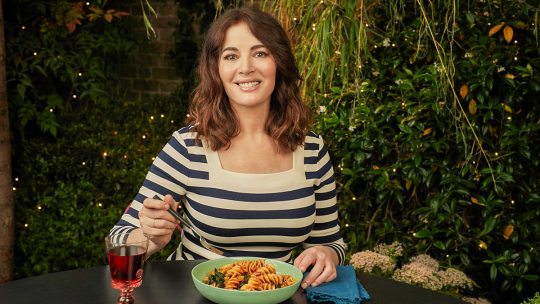
Why not in this interminably shitty year, choose the one show that offered the sort of balm it’s impossible to reverse engineer? Following hot on the heels of a disappointing series of The Great British Bake-Off, Nigella Lawson’s warm, inviting half-hour new series was the televisual equivalent of a long bath and a facemask. Her fish finger bhorta, brown butter colcannon and black pudding meatballs have already made it into this household’s repertoire, but there’s something innately comforting about the luxurious silliness of Nigella that almost transcends criticism. Whether it’s the giddy nonsense of her liquorice box, the ‘did I hear that right’ moment when she revealed her pronunciation of ‘microwave,’ or the seductive self-care of making a creme caramel for one, no other show elicited such pure enjoyment from me this year.
5) I’ll Be Gone In The Dark
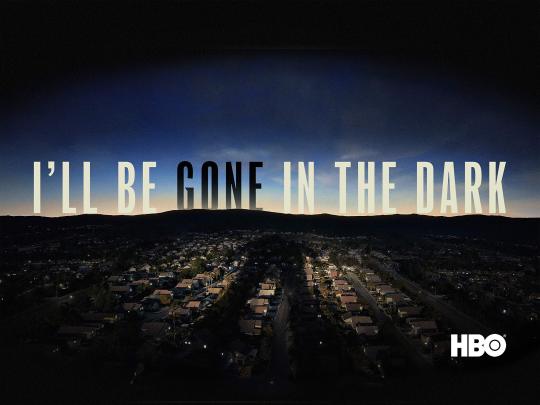
The true crime documentary series boom has increasingly leaned into a focus on the victims, from last year’s The Yorkshire Ripper Files to Jeffrey Epstein: Filthy Rich, but none so effectively or compassionately as I’ll Be Gone In The Dark. Less a story about the hunt for the Golden State Killer and more a study of trauma and obsession, the series splices together home footage of the late Michelle McNamara’s investigation with survivor testimony to create a haunting portrait of one man’s legacy of pain. The early episodes are replete with skin-crawling tension, anguish and tears, but the later episodes allow that to fall away, focusing on the mental fortitude necessary for the survivors at its centre and the sense of community fostered by meeting other women like them.
6)The Salisbury Poisonings
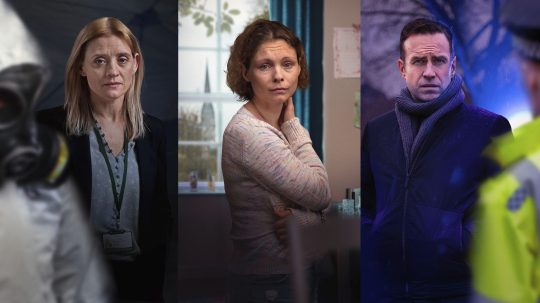
I had no interest in watching this BBC limited series initially: the advertising made it look dry, the story itself (the Novichok poisonings of 2018) seemingly devoid of juicy narrative material. That I’ve watched this three times in the space of a year speaks to its robust, urgent filmmaking. Like several other shows on this list, it arrived into the context of a pandemic it couldn’t have foreseen, but watching the rapid, careful response of local government (crucially and deliberately obstructed by Whitehall) to this crisis presented a sort of horribly watchable what-if scenario. What seemed at first blush to be middle-of-the-road programming evolved over three episodes into the sort of spare, quietly terrifying journalistic drama that invites comparison to last year’s Chernobyl.
7) We Are Who We Are
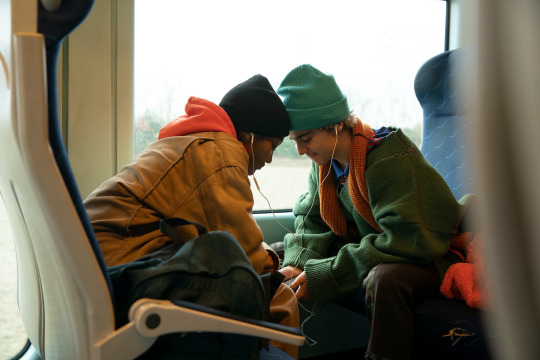
It turns out that Luca Guadagnino’s woozy, seductive style transfers perfectly to television, and despite We Are Who We Are lacking the timelessness that typifies I Am Love or Call Me By Your Name it thrillingly captured the turbulent adolescence of its teenage characters. Equally effervescent and raggedly emotional, the show’s joy always felt hard-won, bumping heads with the often cynical, unreadable motivations of the adult characters. A tender and frank depiction of queer identities within traditionally restrictive environments, it’s also a love letter to young friendship and the lifeline that can provide during our formative years. Spellbinding.
8) Selling Sunset
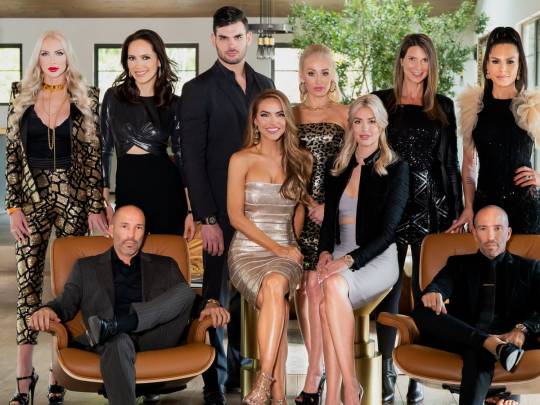
Perhaps the year’s most impressively constructed reality show, I was slow on the uptake with Netflix’s Selling Sunset only to have it take over my life for a few weeks during the summer. Manufactured reality series are tough to get right, but much like The Hills (surely this show’s biggest influence) Selling Sunset gains a lot of mileage from gaming pre-existing friendships for maximum impact. Christine and Mary’s beleaguered relationship and, obliquely, their respective responses to fame continued to provide wildly watchable fireworks, but the build-up to Chrishell’s separation from husband Justin Hartley was exquisitely handled. Suddenly Davina’s strangely uncharismatic shit-stirrer and Christine’s predictably OTT wedding were forced to take a back seat to something approaching genuinely moving television. Trying to tease out what was real and what wasn’t, and following the ways this all spilled out onto social media, was pure, unmitigated pleasure in a year sorely lacking in just that sort of unfettered escapism.
9) My Brilliant Friend
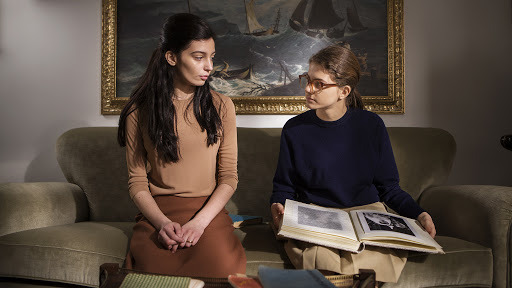
Two seasons in and there might not be another character on TV that I’m as continually frustrated and fascinated by as Lila, the eponymous ‘brilliant friend’ of the show’s title. Sparingly warm, often cruel, seductive, Season 2 of HBO’s masterful adaptation sees her trapped in a loveless, abusive marriage but as ever it’s her fractured relationship with Lenù that forms the emotional spine of the show. There’s often a strange sort of snobbery around the term ‘prestige drama,’ as if all that money on the screen is a smokescreen for a dearth of anything to say; My Brilliant Friend uses every colour in its paintbox to portray the yawning void that opened up between Lenù and Lila as they entered adulthood, from the lavish, provocative outfits Lila’s adopts after she marries Stefano to Max Richter’s evocative score and the detail poured into the show’s supporting characters. Rewardingly complex.
10) Mrs. America
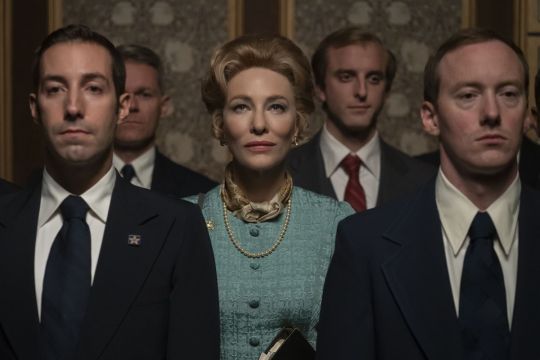
I laboured over what would take my tenth spot this year since there was so much TV that I loved, and especially this year so much of it felt essential to how I was receiving the world around me. Ultimately, Mrs. America’s mixture of astute political commentary, character-driven writing and host of enjoyable performances tipped the scale in its favour. Cate Blanchett’s all-timer of a performance as Phyllis Schafly understandably received the majority of attention, but Mrs. America gave us so many memorable moments: Sarah Paulson’s Alice ringing the bell at reception whilst high, Uzo Aduba’s Shirley Chisholm speaking to a potentially bugged hotel ventilator, Margo Martindale’s Bella Abzug quietly realising she’s no longer the radical of her youth on a busy New York street. This sort of deft, smart political drama isn’t often this much fun to watch, and what an ending...
11) This Life
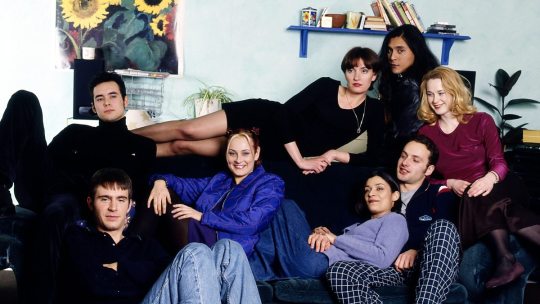
An honourable mention to a show made almost twenty-five years ago that nevertheless helped define the year in TV for me. Shows that were once considered part of the zeitgeist can often feel quaint and old-fashioned in retrospect, but Amy Jenkins rambunctious flatshare drama isn’t one of them. Whilst it can sometimes feel like the show’s characters are universally adverse to making even one good decision between them, there’s a compassion and care underpinning This Life that means it never comes across as overly cynical or sneering. There’s also a lot to be said for discovering a performance that you genuinely consider to be one of the best of the decade, and no other character this year frustrated and moved me in the ways that Daniela Nardini’s Anna did. Bonus points for the genuinely chaotic final episode, perhaps one of the best I’ve ever seen.
And FWIW, these are ten performances from shows not on the list above that I loved this year: Marielle Heller in The Queen’s Gambit, Nicholas Hoult in The Great, Sarah Lancashire in Last Tango in Halifax, Poorna Jagannathan in Never Have I Ever, Michael Sheen in Quiz, Imelda Staunton in Talking Heads, Leila Farzad in I Hate Suzie, Alison Pill in Star Trek: Picard, Gillian Anderson in The Crown and Andy Allo in Upload.
And ten episodes of TV that I loved too: ‘Terry and Korvo Steal a Bear’ (Solar Opposites), ‘The Gang Deals With Alternate Reality’ (The Good Fight), ‘Uncle Naseem’ (Ramy), ‘The View From Halfway Down’ (Bojack Horseman), ‘The Vat of Acid Episode’ (Rick and Morty), ‘I Am’ (Lovecraft Country), ‘No Small Parts’ (Star Trek: Lower Decks), Seven-Spotted Ladybug’ (Everything’s Gonna Be Okay), ‘Daytona’ (Cheer), ‘Whenever You’re Ready’ (The Good Place).
6 notes
·
View notes
Text
Autistic Reclaimed Characters Masterlist
I’m getting back into making reclaimed characters/OCs by reclaiming autistic characters from media.
Character’s name (full name, if given): Christopher John Francis Boone
Apparent age: 15
Gender: Cis boy
Source material (and why it’s bad, this part is optional): The Curious Incident of the Dog in the Night-Time (which is a best-selling mystery novel and a drama/mystery play) and it's bad because it is ableist (the author did little research about autism and autistic people), normalizes the abuse of autistic people, and the book has a stereotypical depiction of autism. Mark Haddon portrayed the protagonist Christopher as elitist, intolerant, dismissive, unconcerned for others, unsympathetic, remorselessly violent, and not noticing or responding to insults and abuse. He is ableist towards other disabled kids at his school and looks down on them while also looking down on non-disabled people. Christopher is mistreated (abused, neglected, abandoned, deceived, gaslit, and insulted), often by authority figures like his parents and most other characters either overlook or actively attempt to justify this. His father Ed lied about his mother Judy being dead to him for two years. Ed also killed his ex-girlfriend's dog Wellington with a garden fork and receives no consequences for doing so except for causing a rupture in Christopher's relationship with him, and he tries to pressure Christopher to repair it by focusing exclusively on how much he is hurt by Christopher. Haddon also portrayed Christopher's parents in a sympathetic light even though the novel is from Christopher's point of view and despite Ed and Judy being abusive and neglectful to Christopher. Siobhan (Christopher's mentor and teacher) is only present in the early parts of the book and absent from the rest of the book without an explanation; the author could have used her to show that Christopher does not deserve to be abused and neglected, but he did not. The novel presents the autistic protagonist as responsible for his parent's divorce and being mistreated by others while showing that he is unaffected by this mistreatment, and portrays abuse, abandonment, and gaslighting as normal and justified.
Pictures of character:

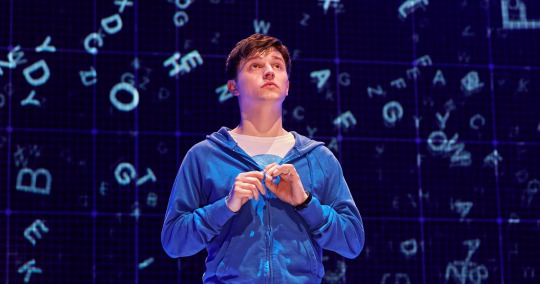
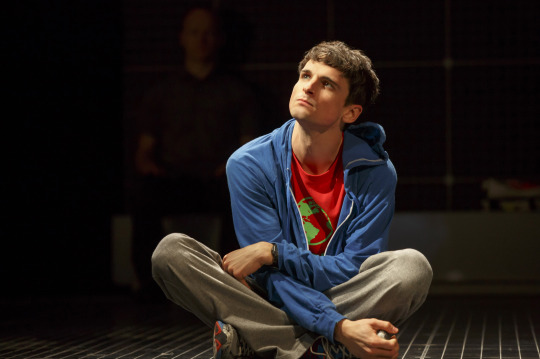
Birthday: August 11
Sexuality: Mspec graysexual neuroromantic/echoromantic/arovague (queer acespec arospec for convenience)
Personality: Christopher is intelligent, sensitive, perceptive, naive, arrogant, and tends to come off as aloof. He has a very self-centered point of view, values logic, tends to be literal-minded, and is sometimes clueless when it comes to social norms. He takes pride in his intelligence and views himself as rational and logical though he can be insensitive, cold, reckless, irritable, irrational, and illogical at times. He tends to have emotional outbursts, lash out, bottle up his emotions, and split due to trauma, but he is working on expressing his emotions in healthier ways. Christopher used to be violent, break into people's houses and vehicles, steal, vandalize property, and have an ableist and elitist attitude before he got the proper help he needed. He cares about the people he is close to, treating them with kindness and is protective of them. His samefood is strawberry milkshakes. He prefers to use a stress ball or something similar to stim. Christopher is a trauma, physical/verbal/emotional abuse, and emotional neglect survivor. He is autistic and has PTSD/possible C-PTSD, NPD, conduct disorder, BPD, depression, chronic boredom, low empathy, abandonment issues, and violent intrusive thoughts and impulses.
Likes: His special interests are math, prime numbers, countries, capitals, detective fiction, mystery novels and movies, thriller films, autism/disability rights, astronauts, and Steven Universe (he especially enjoys Steven Universe: The Movie and Steven Universe Future). He also likes Jojo's Bizarre Adventures, his pet rat, his service dog, Siobhan, strawberry milkshakes, puzzles, computer games, Tetris, and everything being in order.
Dislikes: The colors yellow (when not kin shifting to Peridot) and brown, yellow things (when not kin shifting to Peridot), brown things, dirt, gravy, wood, blood (squick), being lied to/deceived, his birth parents (his birth dad, in particular), authority figures who are ableist and invalidate him, crowded places, noisy places, being made fun of, his chronic boredom, saying he can't feel or doesn’t have emotions, romanticization/glorification of cheating/affairs/infidelity, being called "a handful", everything not being in order, and being touched during a meltdown, shutdown, or flashback.
Fears or triggers: Animal death (especially dogs, trigger), garden forks (trigger), his birth dad (fear/trigger), him or autistic people being blamed for divorce (trigger), being threatened to be or saying he should be institutionalized (trigger), being abandoned (fear/trigger), loud sudden noises (fear/sensory trigger), angry yelling (trigger), being threatened with physical violence (trigger), and being called a "specimen" or other dehumanizing things (trigger).
Relationship status: Taken (Aki--QPP/zucchini and chosen person, and Clover--girlfriend and favorite person)
Friends: Other autistic reclaimed characters
Extras: He is demipansensual, panalterous, panqueerplatonic, cupio-aplatonicflux/neuroplatonic/aplatonicvague (aplspec for short/convenience), demipanaesthetic, and demipan- in other attractions. He is Peridot kin (SU), Spinel kin/IDs with Spinel (SU), Steven synpath (SU), and Jotaro Kujo hearted (JJBA). His favorite persons are Briony and Clover, and his chosen person is Aki.
——————–
Character’s name (full name, if given): Caitlin Ann Smith
Apparent age: 10 (going on to 11)
Gender: Cis girl
Source material (and why it’s bad, this part is optional): Mockingbird (which is a young adult novel and a theatre play) and it's bad because there were multiple moments when the main character Caitlin's behavior is too textbook, the author's writing clearly leaned to a clinical view of autism spectrum disorder, and it was written particularly for a neurotypical audience. Kathryn Erskine preferred the clinical research over the thoughts, feelings, and writings of autistic people. Caitlin's epiphany is problematic because it did not feel like her own, it was inspiration porn due to her having to "learn" empathy, and it feels like the epiphany that ableist organizations like Autism Speaks and neurotypicals who fail to understand autistic people want autistic people to have. While the book was written with good intentions, Erskine regurgitated the "no empathy" myth, people around the autistic character are constantly trying to "fix" her and this is shown to be a good thing, and the book ended up being inspiration porn for neurotypicals.
Pictures of character:
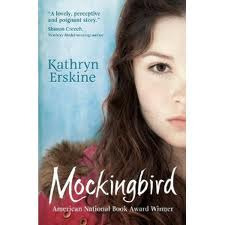
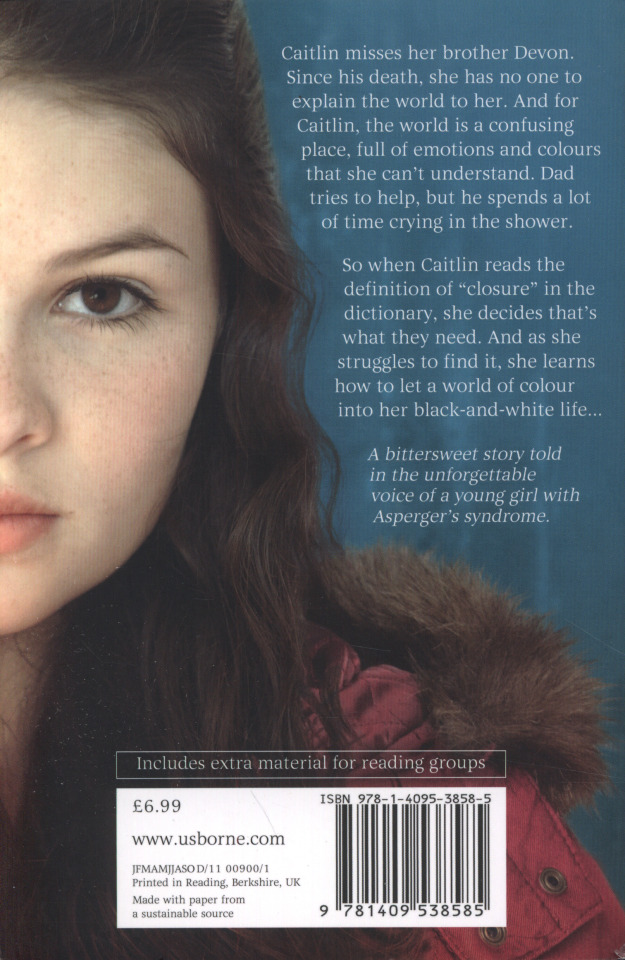

Birthday: In the book, her birthday is unknown so I'll make it November 20
Sexuality: Questioning
Personality: Caitlin is intelligent, cheerful, socially awkward, pedantic, often blunt, and comes off as arrogant without meaning to. She tends to get excited and passionate about things she enjoys. As a result, she tends to infodump. She has black-and-white thinking, hypermorality, and fluctuating empathy. Caitlin can come off as tactless at times due to being brutally honest, but does not mean to hurt people's feelings and will try to clear things up if there are any resulting problems. She also does not always understand social cues and expectations, but she tries her best. Caitlin is more caring than she appears to be. She is autistic and is recovering from depression that is caused by the death of her mother who died of cancer and PTSD that is caused by the death of her brother Devon who died in a school shooting and being bullied in school.
Likes: Her special interests are drawing, dictionaries, and To Kill a Mockingbird. She also likes art, making charcoal drawings, pastel colors, the colors black and white, black and white TV shows and movies, cartoons (especially Disney), Bambi, her friends (especially her best friend Michael), small spaces (they bring her comfort), hiding under a dresser (her "hidey-hole") and bed, and stuffing her head under couch cushions.
Dislikes: Bright colors (neon colors especially), saturated colors, bright lights, noisy places, maintaining direct eye contact, dirt, bugs, wool clothing, fuzzy clothing, live-action TV shows and movies that are not black and white, saying that she does not have or needs to learn empathy, people not communicating with her, bullying, school shootings, and school shooters.
Fears or triggers: Really loud noises (sensory trigger), lights buzzing (sensory trigger), wool clothing (sensory trigger), fuzzy clothing (sensory trigger), gunshots (trigger), and being called "weirdo" or "freak" (trigger). No fears, but she gets uncomfortable when talking about school shootings and school shooters.
Relationship status: Single
Friends: Other autistic reclaimed characters, Michael Schneider (best friend), Josh
Extras: She is Scout kin/IDs as Scout (To Kill a Mockingbird), Bambi kin (Bambi), and her comfort characters are Jem (To Kill a Mockingbird) and Atticus (To Kill a Mockingbird).
——————–
Character’s name (full name, if given): Rose Howard
Apparent age: 11 (going on to 12)
Gender: Cis girl
Source material (and why it’s bad, this part is optional): Rain Reign (which is a children's novel) and it's bad because the author Ann M. Martin wrote it in Autism Voice, the narrative is stereotypical, and Rose is explicitly framed as other due to being portrayed as overly literal and the book's constant focus on her obsession with homonyms, numbers, prime numbers, weather patterns, and rules. It also stereotypes autistic people as not experiencing emotions, unfeeling, uncaring, unable to be hurt, and overly rational. In general, Martin denied Rose emotional agency and wrote a story about an autistic character for a neurotypical audience.
Pictures of character:

(Rose with Rain)

(Another picture of Rose and Rain)
Birthday: In the book, her birthday is unknown so I'll make it September 20
Sexuality: Questioning
Personality: Rose is intelligent, level-headed, brave, determined, polite, socially awkward, and a rule-follower. She loves homonyms and tends to blurt out when she hears one. Rose is caring, patient, and undertakes the role of peacekeeper. She is autistic, has OCD, panic attacks, and hypermorality, and is recovering from depression that is caused by her mother leaving her and her father (she is dealing with her feelings of guilt over it) and PTSD that is caused by her father's past alcoholism.
Likes: Her special interests are weather patterns, homonyms, and numbers (especially prime numbers). She also likes her dog Rain, her uncle Weldon, wordplay/puns, meteorology, the weather channel, Foster's Home for Imaginary Friends, The Incredibles movies, The Secret of NIMH, and being on her routine.
Dislikes: People not explaining things to her, people not listening to why she is upset, being made fun of, being invalidated, and being off her routine.
Fears or triggers: Alcohol (trigger), hurricanes (fear), and being shaken (fear/trigger).
Relationship status: Single
Friends: Other autistic reclaimed characters, Rain
Extras: Her comfort characters are Madame Foster (Foster's Home for Imaginary Friends), Helen Parr (The Incredibles), and Mrs. Brisby (The Secret of NIMH).
——————–
Character’s name (full name, if given): Willem Edward Smith
Apparent age: 12
Gender: Cis boy
Source material (and why it’s bad, this part is optional): How to Fly with Broken Wings (which is a children's fiction book) and it's bad because the author Jane Elson wrote Willem as stereotypically autistic without naming him as such. Willem seems to check off all of the diagnostic boxes of autism without having much of a personality beyond this. Willem isn’t always treated with respect or dignity, particularly when he’s reduced to facts about airplanes and telling people that he can fly. In the middle of the book, Willem suddenly becomes a magical autistic detective by pulling out several pieces of physical evidence and lines of argument to prove that one person wasn’t involved in gang riots, although these abilities are never previously mentioned. Elson doesn't fully address him being mistreated at school. Sasha describes him in her first chapter as “one of life’s special people” and regularly refers to him as her special friend as their relationship develops. Willem is relentlessly bullied at school and in danger at home, although no other characters do anything about this. Other kids make him jump off of objects or buildings and there are rival gangs in the area who are also interested in manipulating him. In class, his teacher frequently singles him out by requiring him to make two friends instead of completing equations for homework like his peers. The teacher tries to mix up students to get kids to interact with Willem and pulls each aside to say that she wants them to show him friendship, though she recognizes that forcing him to make friends in class encouraged him to interact with his bullies and put him in numerous dangerous situations, and she apologizes by the end of the book. The assignment led to Willem being deceived or put in dangerous situations more than once, and the author offers no clear condemnation of this. Willem’s main bully apologizes for his actions a few times but immediately returns to hurting Willem, and when he eventually befriends him it’s in order to gain favor with the girl he likes. Many adults apologize to Willem-- including his teacher, who recognizes that forcing him to make friends put his life in danger; not that her treatment of him was emotionally manipulative. Also, there is no further discussion of any emotional repercussions.
Pictures of character:

(Willem with a dog and holding hands with Sarah)

(Willem)
Birthday: In the book, his birthday is unknown so I’ll make it June 21
Sexuality: Questioning
Personality: Willem is shy and timid yet friendly and easygoing. He doesn’t believe that true friendships can be made by assigning people to be friends. He infodumps regularly and has trouble distinguishing when the other person has heard enough or when the conversation is over. Willem relates to people by using the colors of the traffic lights. He tends to take things more literally and struggles with understanding facial expressions. Willem gets very anxious in stressful situations. Willem gets very anxious in stressful situations. He stims by counting, rambling about anything, shaking his hands, and flapping his arms and hands. Willem is a trauma and physical/verbal/emotional abuse survivor. He is autistic, has anxiety, and is recovering from PTSD that is caused by being bullied at school by other kids, being emotionally manipulated by his teacher, and the trauma from the gang riots.
Likes: His special interests are airplanes (especially Spitfire planes), model airplanes, pilots during World War II, and flying. He also likes his dog Buster, Magic Man Archie, tea, digestive biscuits, cookies, his grandmother Gracie, Sasha, Peter Pan, Arthur (his favorite character is Carl Gould), and traffic lights.
Dislikes: Bullies, gangs, riots, being made fun of, being excluded/left out, people who are too close to him, Finn Maison and his gang the Beckham Estate Boyz, being assigned friends, being forced into a "buddy system", being manipulated or deceived, shouting, being kissed, and his food touching.
Fears or triggers: Bullying (fear/trigger), gangs (fear/trigger), riots (fear/trigger), Finn Maison and his gang (fear), falling (fear), death threats (trigger), being assigned friends (trigger), being forced into a "buddy system" (trigger), shouting (sensory trigger), being kissed (sensory trigger), and his food touching (sensory trigger).
Relationship status: Single
Friends: Other autistic reclaimed characters, Sasha Barton, Magic Man Archie, Buster
Extras: His comfort character is Carl Gould (Arthur).
——————–
Character’s name (full name, if given): Colin Fischer
Apparent age: 14
Gender: Cis boy
Source material (and why it’s bad, this part is optional): Colin Fischer (which is a young adult novel) and it’s bad because despite being written by an autistic author--Zack Sentz--and Colin being likable, the book distances the readers from the perspective of him by othering him and casting him as incomprehensible and weird. Colin is rarely seen as anything but intrigued, confused, or panicked, and that reinforces the damaging, ableist notion of autistic people not having emotions. He is also depicted by Sentz and Ashley Edward Miller to be a super special autistic with “mysterious skills”. Colin’s brother Danny loathing him and their parents is portrayed with no nuance and no emotions from Colin’s end. In the book, Asperger’s syndrome is mentioned as being “related to” autism rather than being part of the autism spectrum. His school is said to be supportive and accommodating, but there is not much proof to support this as the narrative appears to condone the ableist treatment of the protagonist. For example, when Colin is purposefully taunted in class and ends up barking from stress, the principal accepts that it wasn’t his fault, but she also threatens Colin with punishment if he “acts out” again. Another example is his gym teacher Mr. Turrentine ignoring a note from his therapy team that he can skip gym. He also aligns with the popular image of “high-functioning” autistic people as being a socially awkward, math/logic/train-obsessed, straight, white, middle-class teenage boy. His symptoms become less extreme at the end of the book, which is seen as a positive development; this portrays autistic traits as undesirable and negative.
Pictures of character:
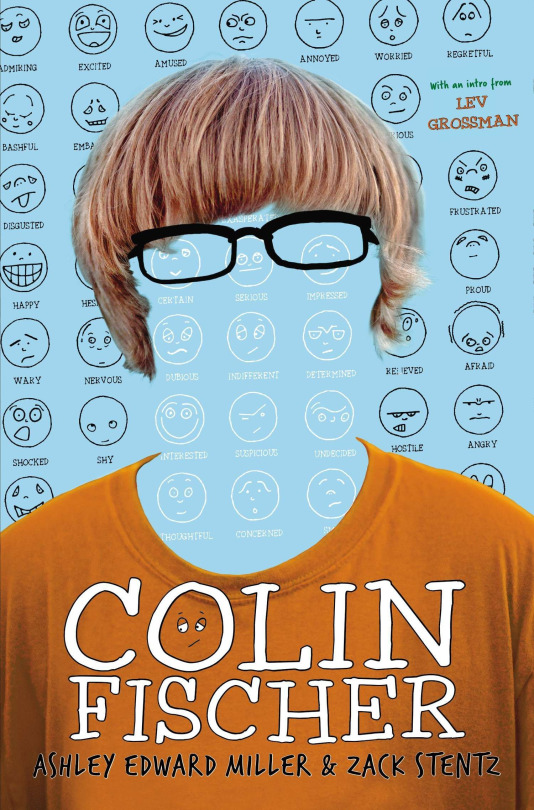
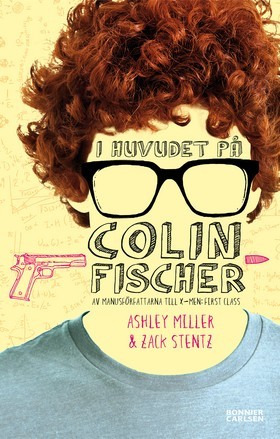

Birthday: In the book, his birthday is unknown so I’ll make it September 22
Sexuality: Disordinebisexual biromantic, leans towards females
Personality: Colin is curious, inquisitive, and friendly. He enjoys being organized and tends to have meltdowns when not being organized. Colin has slow reflexes and activities like basketball, soccer, playing catch, monkey bars, riding a bicycle, and gym class are difficult for him while activities like jumping and bouncing are easier for him. He speaks in a monotone voice, but talks fast when excited. Colin is often very literal and has trouble detecting sarcasm. He stims by barking when stressed or overwhelmed, jumping especially when happy or excited, and making repeated clicking sounds. He usually has a hard time telling when people are upset because facial expressions don't come naturally to him, and does not always understand social cues and expectations. Colin pet regresses to cope with stress and being autistic, disabled, and otherwise neurodivergent. He is autistic, nearsighted, a dog regressor, and has gross motor dyspraxia and hypotonia.
Likes: His special interests are science, aliens, trampolines, SHAED (his favorite song is Trampoline), asparagus, Sherlock Holmes, and Star Trek. He also likes math, trains, jumping, bouncy balls, dogs, his notebook, repeated clicking sounds like pens, stacking things, and patterns (especially finding them).
Dislikes: The color blue, blue things, being touched if he does not initiate it or if he is unprepared for it, being touched when stressed, direct eye contact (he finds it uncomfortable), phones ringing loudly, the sound of the school bell, mushy foods, high-pitched voices, dolls, gym class, sports, perfume counters at store entrances, being made fun of or taunted, bullying, ableist people, having his infodumps be interrupted, his room and belongings being tampered with, Rudy Moore, and biphobes/bimisics.
Fears or triggers: Sudden loud noises (sensory trigger), phones ringing loudly (sensory trigger), the sound of the school bell (sensory trigger), perfume counters at store entrances (sensory trigger), high-pitched voices (sensory trigger), mushy foods (sensory trigger), and dolls (fear).
Relationship status: Single
Friends: Other autistic reclaimed characters, Melissa Greer (best friend), Wayne Connolly
Extras: He is alienkin and dogkin, and his comfort characters are Sherlock Holmes (BBC Sherlock) and Spock (Star Trek). He has reading glasses to help with his nearsightedness.
@luigiskids, @connerskids, @mikus-oc-blog, @asherschildren, @kirby-hates-pedos, @vela-hates-creeps, @ashisintheskies any thoughts?
#reclaimed oc#reclaimed ocs#reclaimed character#reclaimed characters#actuallyautistic#actually autistic#ableism tw#ableism mention#abuse tw#abuse mention#neglect tw#neglect mention#my oc#my ocs#long post#chiajasmine#chiajasmine's favorites
31 notes
·
View notes
Note
Director’s cut on fast as these legs can go(i’m going home) please 💕
particularly relevant to some of the shit going on right now, age differences are not always bad. especially in the queer community, there can be a lot of mentor-ship and caring provided by an older partner, just like the younger partner can be equally loving and supportive. i think an often overlooked point in these discussions is that queer culture differs on this issue. the power dynamics are not the same. the history is not the same. i think in discussions of age gap, there’s a lot of projecting by cis women of their experiences with unwanted attention or predatory behavior by older cis men onto queer dynamics. of course, bad things can still happen in queer relationships. older people can still take advantage of younger people. but it’s not a blanket ‘this is always harmful’. and i don’t think age gaps should not be universally reviled.
one of my current partners is 10 years older than me, and granted i’m 26, but there is nothing toxic or abusive about it. on the other hand, i’ve also had relationships with the same age gap be predatory and gross. i’ve had relationships with no age gap be terrible for me. at the end of the day, it depends on the people involved. life is not black and white.
in that story, i really wanted to explore how billy might be able to help hop overcome some of his old baggage. while simultaneously depicting the way billy carries scars from his abuse. hop’s reluctance to let go, and billy’s anxiety manifested as compulsive cleaning come together and ultimately make something helpful for both of them.
i think that’s what a healthy relationship should do. it should aid growth
6 notes
·
View notes
Text
Jake Reviews Stuff: Bojack Horseman: Horay Todd Episode! (Plus a little bit on girls with slingshots)
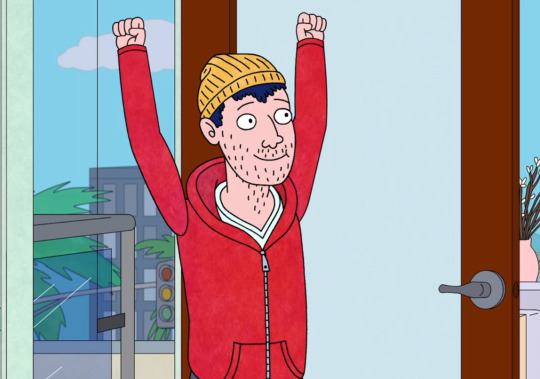
Happy final day of pride month everybody! It’s been a hell of a ride.. and not just because the current landscape of the globe feels like hell right now, And to close it out we’re taking a look at an often overlooked segment of the queer community in media: Asexuality. I first learned about asexuality from the web comic girls with slingshots, because I love comic strips as much as comic books and because mainstream media tens to be really bad about telling people about diffrent facets of the lbtqa+ community, proven by the fact It took me till 2010, 18 years into my existince, to learn trans people existed from the long running candian teen drama Degrassi, birthplace of candian rapper Drake despite his damndest attempts to make people forget that, and a show that actually tackled the subject really well and the horrible shit trans people have to put up with, especially at Adam’s age. I also bring it up to apologize for a lack of trans representation of this pride as I scratched my head trying to think of some.. only to forget “oh yeah that really damn good rocko special from last year exists and has been sitting there all month dumbass” as I was writing this. I’m truly sorry and will try to get a review of static cling out sometime in june as an apology.
Back to Girls with Slingshots though because like with degrassi I want to give it genuine props and a talk here both for teaching me about it and being really good at queer representation in general. We actually meet the comic’s Ace representivie Erin, a shy 19 or 20 year old, when lead and professional dumbass Hazel hired Erin to find out who was dating her friend Jamie.. turns out

Given Jamie had only been dating men up to this point, and her one time with a woman lead to her assuming she wasn’t bisexual, when Jamie TRIED to tell Hazel what was going on Hazel, being kind of a dim, assumed it was an aaron and Erin decided rather than just you know, show up and let the the hamster in hazel’s brain slowly figure it out to do this.

Why yes that is a tiny asexual wearing the most transparent graucho marx-ish disguise ever. And why yes Hazel absolutely falls for it and even when Erin outright takes off the disguise it still takes Hazel a good minute to connect the dots. And why yes, this strip is awesome and is worth taking a large amount of time to talk about in an almost entirely unreatled article, more than i’d planned really. But eventually things hit a snag: the two TRIED having sex before Erin left to go to school in london.. and given i’ve out and out admited she’s asexual, you can guess it went badly, with Jamie feeling bad it was so uncomfortable and didn’t talk to her until visting her in london, where the two patched things up: They still loved each other, Erin was simply asexual and Jamie realized she was biromantic. However this didn’t mean Jamie herself was asexual.. and to Corsetto’s credit she actually fully dealt with this. After Jamie accidently became a meme while complaning about how horny she felt, the two had an honest talk about it, with Erin revealing she was perfectly fine if Jamie hooked up with dudes to satisfy her needs. It was a nice compromise and one of the first times I also learned polyamory wasn’t just something some weird asshole on tv did where he forced three women into what looked like an utterly miserable situation. What i’m saying is polgamy isn’t the same as polyamory and sister wives is objectively terrible and i’ve only seen minutes of it.

In fact the current daily reprint is up to this storyline and has Erin wing womaning for her girlfriend. And yes I do acknowledge this won’t be a solution for EVERY couple, everyone is diffrent.. it was really nice to show a relationship between two people of diffrent and wildly underrepresented sexual orentations that , rather get into a depressing thunderstorm over something like this, talk it out like adults and work out a resonalbe solution. Hence why I took several paragraphs of something else entirely to get into it. If you want more , check the strip out here.
https://www.girlswithslingshots.com
Okay now that plot cul de sac is out of the way, though I don’t regret a minute of it, you see the problem: Girls was the exception not the role and media wise, has a small but loyal fanbase. Big shows just didn’t really get that asexuality existed. But then one decided:let’s go let’s do this... so now i’ve talked about something else entirley for a good few paragraphs let’s talk about Bojack horseman Bojack Horseman is, like SU last time, one of the best shows of the last decade animated or otherwise. And like Steven, and adventure time before steven, it changed the game on what a genre of animation could do. See while Animation was going thorugh another renicssance in the 2010′s, it was mostly on the kids side for the first half.. Adult Animation was...
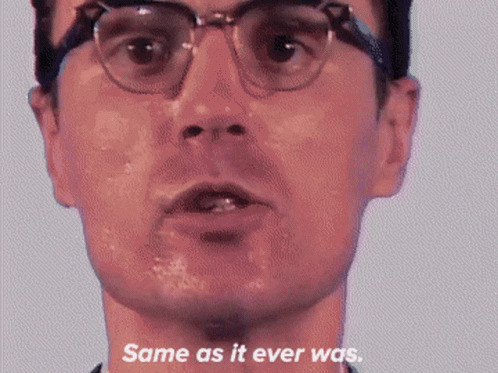
While there were good shows,after all Archer is a child of the 2010′s, bob’s burgers premired shortly after, and venture bros was, and still is, goin.. they were the exception. Family Guy was devloving from a really funny show to a horrible, unfunny mess that was and probably still is the television equilvent of screaming racist and offensive things just to piss people off and thus get attention and Adult Swim hit a slump, with several great shows like metalocalypse slowly leaving, and most that was left were garbage like Mr.Pickles. It .. wasn’t a great time.
But around half way two shows changed things and most adult animation stood up and took notice; Rick and Morty, which while i’m not as much of a fan these days was and still to some small degree is a really funny show while also having a deeply complex and deeply deconstructed lead. And around the same time. we got Bojack. As you probably know, Bojack was the tale of Bojack Horseman, a former 90′s sitcom star who starred in Horsin Around, basicaly fully house if uncle joey adopted orphans with bits of other tgif shows mixed in. Also he’s a horse and this world has a mixture of humans and various anthropormphic animals. And they dont’ shy away from that either and use that for a LOT of great jokes. Anyways Bojack is now a washed up asshole whose done tons, and as the show goes on continues to do, terribe things to get where he was, and is now trying to hang on to the scraps of his career. Around him are Princess Caroline, a pink cat and his agent and ex-girlfriend who wants a real realtionshpi , a baby and her career to go somewhere, Mr. Peanutbutter, Bojack’s dim aquantince who was on a ripoff show (which only PB seems not to get and is even called “Untitled horsing around ripoff project” at first in a flashback) and is really nice but also really bad at reading people, Diane, PB’s wife for most of the series who soon becomes bojack’s friend when she’s hired to do his autobigoraphy, and today’s subject, Todd, a 20 something cloudcuckoolander who crashed on Bojack’s couch after a party, and just.. never left since Bojack thought todd was kicked out for being gay and brought him in for brownie points (he was just lazy), and then despite insulting Todd constanlty kept him around because he was crushingly lonely and before Diane, had no other friends. There’s obviously more to it. more evolutions but as the episode title shows, today’s ep is all about Todd, so we’ll be focusing on what he’s been up to: Todd spent most of the first two seasons just kinda.. bouncing around. Whlie the a-plots could be more serious, most todd plots were wacky palette cleansears, from him ending up in jail and trying to court two gangs at once like it was that one episode of family ties every sitcom sense has copied, made a giant copy of his own head over months, or started a safe cab company for women that somehow ended up as stripper cabs. Season 3 however added more weight: Bojack’s various slights against Todd were piling up, and he was starting to get tired of it, the straw that broke the camel’s back coming when Todd’s ex emily, who todd failed to sleep with because he didn’t want to but, not knowing what an asexual even was, couldn’t comincate with it and bojack having a really bad track record of thinking with his dick.. you can kinda see what happened.
Finding out much later, after Bojack used emily telling him not to as an easy way out of telling him and both were kinda stupid with that, and Todd eventually found out something happened.. but when Bojack tells him it was sex, Todd is genuinely suprised and had, for the last time expected better of him. Really Todd is a great deconsturction of the wacky sidekick in shows like this: the often abused optimist oppisite of the pesmist asshole protaganist. But here it shows.. that can only go on so long. You can only treat a person like dogshit so many times before they grow tired of you and as Todd prepares to move out and bum around somewhere else we get one of the most iconic, and best, scenes in the series as Todd unloads on bojack after the horse tries apologizing.. couched in excuses.
youtube
“It’s you bojack, it’s alwasy eben you” This scene hit like a truck, not just due to Aaron Paul absolutley killing it, but because as someone with a bad habit, even sometimes falling back into it, of justifying why I did something bad afterwords or blaming other people for far too long, if not NEARLY to the extent bojack did, it resonated. Sure those kinds of things may have LEAD you to the things you do but sometimes, your just doing shitty things and no amount of reason for it makes it okay. And it was a bold step to take: while the two talked on occasion and their friendship KINDA regrew, it never REALLY recovered from this. Things didn’t go back in the bottle. Bojack lost one of his best friends as his friend.. they were in the same orbit but it’d never be the same. Todd did eventually tell Emiliy what he was dealing with and Emily told him what he was, and Todd started crashing on mr.peanutbutter’s couch because, unsuprisingly, the two eventually became close friends. So with Emily out of the picture, while she liked todd she needded sex and neither of them thought of an open relationship, that’s where we find Todd, grapling with his asexuality while getting into his usual wacky misadventures, which hadn’t and would never stop, as evidenced by the horrifying sex robot he created to try and please emily in a later season. So with all of that FINALLY out of the way. we can finally dig into horay todd episode after the read more. Because while i’m going to try doing that less to get more readers.. this episode is giant just at the introduction and is a half an hour long.
We open with an orchestra, nervous Todd won’t show up for his solo.. because of course Todd’s a regular part of an orchestra now. He shows up in time to do his bit on the triangle, cheers all around
Att the bar, the various musicians wonder just who Todd is. Was in a prison gang? (Yes two in fact as stated above) A foreign prince?? ( He looked just like one and they swapizesd for an episode), a tech billionare? (For all of five minutes) Or is he both?... there isn’t a both here I don’t know why I did that. However the conductor roars in, he’s a lion, .. and it’s keith david everybody!
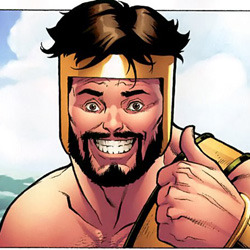
As you can probably wager Keith David is a faviorite of mine, one of the best voice actors around, a fantastic live actor, and just all around awesome dude.. and still pretty damn hot at 64. And while this is a minor role, ANY time keith david shows up is cause for celebration and I honestly forgot he was in this, so it was a nice suprise.
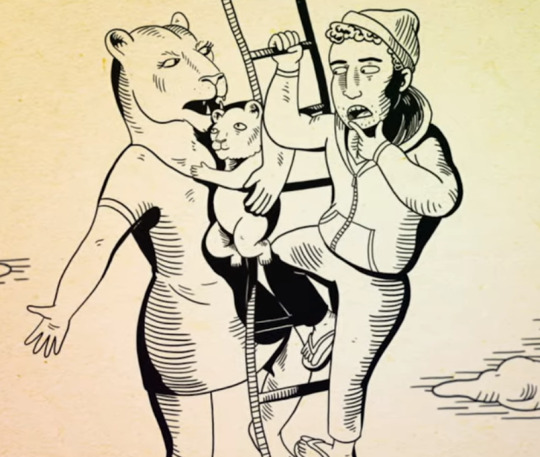
We then find out how the two know each other, with the conductor calling Todd “The most giving man he’s ever known.” Accurate. Todd once saved his pregnant daughter from a shipwreck carrying her on his back, delivered said baby on a piece of driftwood then circumcised said baby while hanging from a rescue copter.. and also had a spirited but respectful debate before hand about how circumcion had fallen out of vouge, with them eventually deciding on it since the lions are jewish and she’d like the option for the baby to join the relgion if he so chooses when they grow up. Which is both a great gag and a nice nod to circumcisons not being popular these days, and makes todd even awesome. I mean not every man would not only be repsectful when talking to a mother about this, but do so while hanging from a helicopter. Also props to the old timey paperback illustrations, which doubly sell the sudden debate bit. It’s something I love the show: while it’s one of the most depressing in existance, it’s also god a wonderfully goofy sense of humor that helps ballance things out. The conductor then explains todd later filled in last year when their triangle player died after getting his foot stuck in his triangle, another good one, but worries about todd and just how MUCH the man gives and wishes sometimes to see him not there when his part comes up, to see Todd give for himself. Then of course Todd spoils the move by coming out drenched in water with greasy hands, having tried to wash taco stains off his shirt, but then got greasy hands from said taco he ewa sstill holding and being trapped in a bathroom for an hour. That’s Todd in a nutshell: He can be legendary, selfless and utterly helpful or insightful one minute, and somehow get trapped in a hallway for an entire episode the next. That.. actually happened in case you either didn’t know or entirely forgot. Cue Credits.. a FIRST for this show suprisingly. Given most shows i’ve done are 11 minutes the credits usually happen before the show and I just forget to talk about them. I”ll breifly say the credits for Bojack are exellent and I love how they evolved and changed as each season wore on, and give the team kudos for doing what most shows just simply won’t or can’t do in western animation.
We’re at the peanutbutter residence, where PB is in the middle of his political campagin, working with his controlling and assholish ex wife katrina, and Todd gives him some pocket cheese to help but get’s shoed off and works on breakfast in the background with a giant egg for some reason. Probably because all animals are sentient here. And yes they explained how they still got meat. Anyways, Diane is annoyed that Katrina wants PB to decide if he’s for or against fracking based on public approval, insstead of you know just.. being against it because it’s wrong. She’s STILL better about it than that one episode of last man of earth I watched where the straw man liberal asshole argued with the consertaive asshole lead over a pothole they had and refused to just let his son belivie god exists because it calmed him down and in the next one forcibly dressed said son up as coal to mock his future mother in law because he’s as bad as the lead character, because this show is miserable and Ryan is what the writers apparently think a liberal is. Anyways as this goes on we see Todd.. pulling his weight. He packs diane a lunch, leaves it by her purse as she gets ready to go to work, makes said giant egg into an omlette for pb and sets up a nice breakfast complete wtih his medication hidden inside because dog. We see that despite crashing there Todd has grown from where he was and is now making sure to actively contribute to the house as thanks for letting him stay. Anyways PB needs his glasses to take them off to seem sincer because he left htem at princess carolyn’s, she also represents Peanut Butter, Todd and Diane. Todd heads off, though dosen’t sign for a package as he once ended up with cremated remains, or cremains as he calls them and I now will, over it because of course he did and heads off while a mysterious horse in a trench coat watches... more on her in a bit.
At Carolyn’s agency , PC annoynces “it’s todd” with todd giving back an excited it’s me... he should enter the room like that every time. It really fits. Anyways, it turns out PC needed him for help with actress Courtney Pourtnory, whose in femalecentric Taken spinoff ms.taken, which i’m shocked wasn’t an actual movie. There’s also a lot of tounge twisting puns which as always Amy Sedaris flawlessly delivers and that i’ll miss now the show is gone. Anyways Courtney isn’t seen as relatable so PC goes with the oldest trick in the book: have some normal guy date the celebrity to see them as relatbale and well todd’s on retainer. Todd is reluctant, less so due to his asexuality and more because he’s not only already busy with the sunglass errand, but has a meeting tonight. intresting. But PC ensures todd it’s no trouble and they can just do lunch for the paparazzi and todd does like the idea of having his picture taken. “It’s proof I exist.” It’s the same reason I hate having mine taken. It’s proof I still exist and this hell year hasn’t ended yet.
Back at the campagin unsuprisingly what todd didn’t sign for was important and Katrina just tells him to sign for Pb next time, which is like giving a dog a play bone that also has a dart full of poison that shoots out of it into the rest of the living room. There’s no way this ends well and you should know that. So Katrina asks him to dance a little sidestep on the issue instead.
youtube
This movie is eh but this musical number is awesome and I will use it at any opportunity. Rest in peace Charles Durning. It helps it’s still relevant as hell for both sides of the isle. Anyways Todd signs a letter to the state goverment because again, telling todd to do something without even remotely thinking about it is like giving a baby a boomerang loaded with nitro glcyerne, but soon gets cloroformed by our mysterious viewer. “And down goes todd. “.. said by todd himself because of course he did> God bless this man and aaron paul’s performance. “And up comes todd!” .. whose, not suprisingly, apparently been drugged and/or knocked out enough to have a catchphrase for these situations. After grabbing a pool skimmer for defense because you know a stranger just kidnapped him, the stranger calms him down and introduces himself: And this is where we properly meet Hollyhock.. Manheim-Mannheim-Guerrero-Robinson-Zilberschlag-Hsung-Fonzerelli-McQuack which I copied directly from the wiki because this review is already running long and running behind, and I don’t want to spend an hour trying to copy that from the episode itself. The nightmare of a name, which is a running gag is because she was adopted.. by 8 gay men in a polyamours relationship. And one of them is apparently related to launchpad.
Anyways Hollyhock, who called at the end of last season to no answer, thinks Bojack might be her dad and thus bought a spy kit to figure out. And used the cholorform, if apologizing for it because once you’ve got it you can’t not use it. Todd is unsuprised by both things; As bojack hilariously but horrifyingly put it his penis was like sun dried tomatoes in the 90′s: it was on everything, and Bojack himself had that kit, mostly using it on himself because of course he did. She tracked down Todd because Todd was in Bojack’s book as his roomate. Todd explains they no longer live together and Bojack has been missing, long story there though we do know where he was due to the last episode, but since Hollyhock really dosen’t need to meet him just wants his dna to find out if he’s related or not, so Todd suggest sher house. Time for more cloroform!
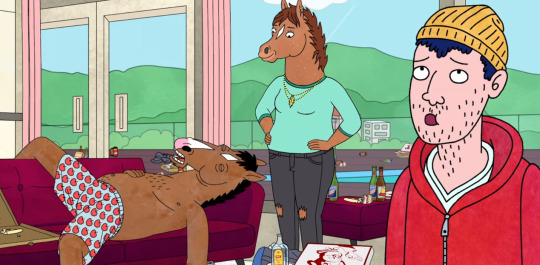
At Bojack’s place Todd wonders where to find a hair, since most ladies Bojack is with understandably shower afterwords only for Holly to find one.. and a sleeping unconcious clearly spiraling once again Bojack. Todd lament siwth an oh bojack: just because he’s mostly done with the guy dosen’t mean he still dosen’t care. Todd’s still a good guy and still dosen’t want to see his former friend go through this for the 80th time... he’s just done being the one to be there for him through it and that’s understandably. Hollyhock yanks a hair which does nothing to wake him, unsuprisingly, but the mention of “blowing this place” makes Bojack wakes up as he thinks people has blow. it’s also telling that he’s worried Todd’s going to yell at him again and that he’s clearly stills marting from his understandable telling off. Todd is force dto make up an excuse since Hollyhock VERY understandably dosen’t want to tell him the truth, and Todd lightly rebuff’s bojack’s attempts to be pals again.. given he hasn’t really changed, it’s understandable. Also Hollyhock cloroforms him to get out of BOjack asking more questions and sends todd to take the dna to a place. Todd heads to a 1 hour dna testing lab, because of course there’s one this is LA. But without Hollyhock’s dna they can’t do it but the guy says to come back with it in an hour after he’s done with lunch.. which gets Todd to realize OH SHIT I HAVES A DATE and he runs off. The fact he DIDN’T actually say that is a suprise.
At the date Courtney transparently breaks up with Todd for publicity as Todd is utterly confused, before getting reminded about hollyhock. This scene just kind of happened so have the first gif I find typing “David Byrne” into gif search.
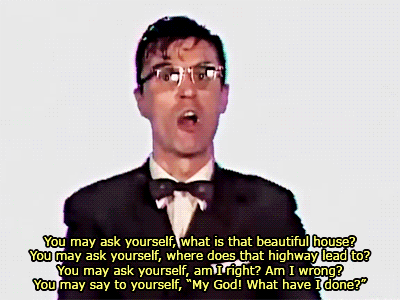
Back at Bojack’s house all Hollyhock’s done is snoop around, finding Bojack’s box of bad reviews of other people’s sitcoms because of COURSE he has that, eat a full box of donuts and take a nap.. given the simliiarity todd isn’t sure they need that test. Hollyhock naturally refuses and just wants to use todd’s hair but since the dna guy said that don’t work, they find some in her comb. Todd however has to cover for the earlier Maid excuse he gave bojack, nice bit of foreshadowing there, and cleans up the house while Hollyhock sits around. I know she’s not his daughter, still related but still and even I’m having a hard time beliving the truth. No sooner than does Todd put out that fire, than things get worse; Naturally the signutre was for pro fracking and while Katrina is pissed, not fairly as again, it’s like she handed a baby a shot gun for tots that make sa funny noise when you pull the trigger and is suprised that he shot up the couch. Anyways PB is understandabily more worried his wife will be upset he has to support fracking now, and Todd untietionally offers to distract her from the media while Hollyhock takes a nap because she feels.. really diffrent early on. While parts of her horseman traits would remain here she’s far less friendly or helpful than she would be later on in this half of the episode. it’s not BAD as sometimes it takes an episode or two for a character to properly become what their like for the rest of the series, it’s just WEIRD. Like Red Green’s monotone in early Red Green Show episodes it just feels.. off.
Todd rushes off to Girl Croosh, the click baity blog diane works for because I forget when things happened sometimes, where Todd is doing the most todd distraction possible: Telling diane to look at him while he dances. Which to Diane’s shock has been going on for 45 minutes.
Diane’s boss Stefani comes in voiced by the wonderful Kimiko Glenn who I admited to loving as a voice actress, and having a crush on back in my first close enough review and still stand by. She’s wonderful. Stefani berates diane for not being clickbaity enough, other plot for this season etc etc next todd crisis. Princess Carolyn is annoyed they didn’t get a picture of courtney with todd.. even though she left first but this eems to be the “blame todd for things that are either not his fault or you should’ve expected by talking to him for five minutes” episode. Anyways PC says to be at the shark jacob’s fashion show in 30 minutes, and Diane bemoans trying to get people to pay attention to the world sucking. Todd shows some more competence and actually gives her a good metaphor: When mr.peanutbutter dosen’t want to take his pill, as I expected, Todd disgusied it.. though in the cheese. Just do that: put some hot goss around the rest of it. Todd, to keep her away from the computer with a literal headline that reads “Mr.Peanutbutter supports fracking and hasn’t told his wife yet”, because this show is amazing, makes up a story about Channing Tatum having an illgitamte daughter and gives her the testing hairs. The theme of this scene, and the episode really is that people underestimate todd: understandably the man got lost in a bathroom at the top of this episode and refused to sign a package because of past shenangians... but because of that they fail to see that todd is .. actually really compitent, insightful and caring. IN this one scene he actually suceeds in his mission in the dumbest, toddest way possible, then on the fly kills two errands with one stone while also giving Diane genuinely good advice. But the big question the episode poses is.. what does TODD want at the end of the day and just how much of this “doing everyones shit for htem” should he take?
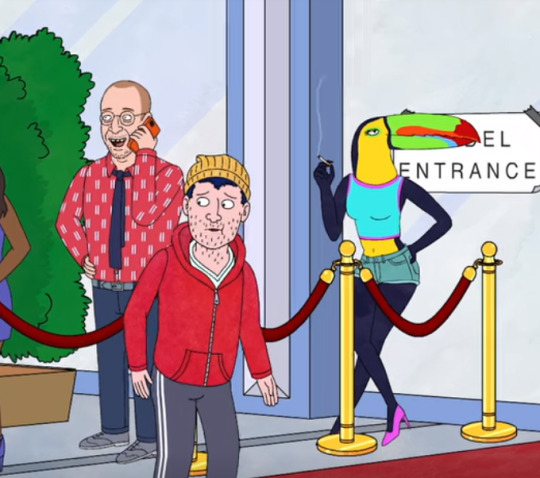
As Todd passes a sheep with a wonderful “The end of the wool is coming’ sign, he sneaks into the fashion show.. we also see a background model bird smoking that I SWEAR is a protytpe for tuca, just with a diffrent bodytype and a more aloof, supermodely face. Though if this is the same universe it could just be a sister of hers. It’s not out of the realm of posiblity. And yes I will defintely be talking Tuca and Bertie at some point, especially once it comes back next year. Being todd he ends up walking the runway instead, and it goes poorly, but Todd telling them that fashion shouldn’t be elitest somehow works and he become a hit. Also Tim Gunn is there as himself, beacause this show liked to mix animal versions of celebrites iwth the real ones, and sometimes had the real ones voice the animal versions of themsselves. Todd also gets a call from Diane: it’s a match. ALso I forgot Todd’s wonderful ringtone which is him , to the opening of that one betooven song going “todd todd todd TODD!” Magical Back at the horseman residence, Bojack’s sent hollyhock to go thank channing tatum for collecting his mail and goes through all the mail that piled up while he was MIA. He’s also wallowing about his miss opprtotunites, some involving pottery barn. He’s suprised by PB’s governor run, with Todd countering that of course he knew he’s been around and when Bojack asks how Diane feels Todd shoots that down right away and insists he just ask her himself, and again counters; Does she even know he’s back? Bojack insists he’s no tready, and he’s only told Todd he’s back.. and his various drug guys, channing tatum, and hollyhock. But not his inner circle. And given he and PB tend to not mesh well, though it is getting better at this point, he ruined things with Todd, he dropped PC for entirely warranted reasons.. Diane really IS the only person he has to call and he’s likely afraid of disapointing her. He then tells Todd to friend break up with channing tatum, with todd thinking his speech was about him and being understandably disapointed. I also like Todd’s attiude here: he’s done just.. taking Bojack’s shit and isn’t going to stick around for it and only really agrees to go to channing tatums because Hollyhock’s over there and he needs to tell her.
Todd goes over and lies to hollyhock after warning her BOjack might not be readyf or a daughter and Hollyhock expresses her own doubts. Then diane shows up and Todd’s force dto play being channing tatum so they both don’t get arrested for trespassing. Diane confronts channig with her thoughts he’s the father, which hollyhock instnatly realizes exactly what that means, but relents on doing so, not wanting to be that kind of journalest and ruin someone’s life for her own benefit. Todd gives her a pep talk and she accepts it’s him because it’s what she thinks channig tatum would say and leaves with a cheery “love half your movies. Hollyhock meanwhile has fled, obviously upset and before Todd can deal with THAT, he gets another call, clearly tired at this point as am I as i’m not only not used to reviewing 22 minute shows anymore, let alone 30 minute ones, but I have a ticking clock due to my own procastination. She once again gets mad at him, this time a bit more understandably, and Todd darts off to meet courtney.
The two talk, and Courntey is dressed like todd only her hat is 50 dollars.. and that’s a hella don’t... I miss Macklemoore. Anyway, Courtney opens up about being seen by everyone but not being seen at the same time.. which todd relates to even if courtney can’t fathom someone having the same feelings, but admits it’s nice to talk about it while Todd laments about his meeting, worrying h’es not ready yet. That what if it goes badly? What if the idea of something is better than the truth. I realate both due to my anxiety proving that and because as a comics nerd and general nerd, that’s happened more times than I can count, both with legendary stories that turned out to not be very good or something I really looked forward to turning out to be a mess, like It Chapter 2, or Zoolander 2, or Secret Empire or.. point is Courtney does relate to that and prefers fiction and the paparazzi, the same ones who tailed bojack for multiple episodes in season 1, eat it up with Courtney announcing their engagment iwth todd responding with “Horay i’m confused!”... that’s me all day everyday buddy.
Todd goes back to Bojack’s to find Hollyhock, and being a good friend even to someone who certainly dosen’t deserve it at this point, tells Bojack the truth.. which he reflexvley denies before Todd admits she didn’t want to tell him and Bojack. understands and once again piles pity on himself.
We then get the scene that got me to review this in the first place.. thanks asshole! All jokes aside, the two have an honest conversation: Bojack, while not outright saying sorry admits all he does is hurt people and he slept with the one person he ever saw todd be in love with... given it’s hard for him to give out a genuine apology, it’s still a good moment as it shows Bojack, even if he screws up constantly, is really apologetic about destroying their freindship. That part also shows WHY it was wrong: Sure todd couldn’t and wouldn’t sleep with her.. but it dosen’t change the fact Bojack SHOULDN’T have , knew what he was doing, did it anyway and then never told him.
youtube
He continues with it though after todd wonders if he’s evne allowed to love. , saying he got more of Todd than he deserved, and all the guy asked for was a roof over his head and the ocasional smore in a baquet, and tells todd he didn’t deserve him and he really appricated him. This.. actually gets Todd to open up and he comes out as Asexual to bojack which after making it clear it means he’s not a sexual deviant, dynamo or what have you, a great wordplay gag, that he’s just not sexual.. Bojack.. shockingly and to Todd’s suprise dosen’t think it’s weird like he expected, but is thrilled and honeslty wishes sometimes he was asexual and we get what I consider to be the best joke of the seris. Bojack; Maybe then I wouldn’t have A strain of herpes Todd; You have multiple strains Bojack: I know, it only works with the A. Todd feels.. good.. while i’m not Ace myself I am bisexual and both times i’ve come out, first to my mom and a few friends, then to the rest of the world this month on facebook, it felt.. freeing. To not have to worry or hide no more.. to just be who you are.. and it feels.. good to Todd. While Bojack tries to slide back into friendship since todd isn’t mad about Emily anymore, Todd gently stops him: It wasn’t just here, as I made clear earlier, he’s not ready to be his friend again.. but hes ready to be more than NOT friends. While their freindship won’t be the same anymore, as Todd makes painfully clear.. Todd gives him a genuine i’t’s good to see you as he leaves. Again he may not LIKE the guy anymore and understandably dosen’t want to be the only person he can count on in bojack’s life... he still wants the guy to be okay, which the fans could probably relate to the whole damn series; Being fed up with his bullshit and TERRIBLE TERRIBLE actions, but wanting him to be better already. The door rings.. and it’s HOllyhock. We MIGHT get to that another time, but for now we close out Pride, and todd’s tale as todd goes to his meeting... which as it turns out...
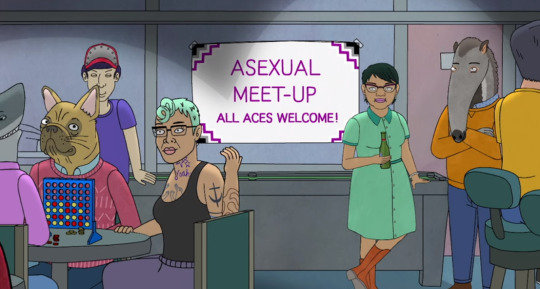
While there is still more miles on Todd’s journey, ending his sham engagement set up here, a failed relationship and a sucessful relationship at the end of the series, not to mention reconcliation with his family... Todd takes an important step and takes what he wants, finding his people and being proud of who he is.. and that’s sometimes the best and hardest step. And we get a nice button on the framing device as Todd misses his solo for the first time, to the conductors delight. The End.
Final Thoughts: This was a really good rewatch. While not AS heavy as some other bojack episodes, it still has plenty of good character work, moving along or setting up several plots for the season without any of it feeling forced whlie giving Todd added depth in his coming out story. Todd still dosen’t fully understand what his asexuaity is and is scared to be open with it.. but that beautiful scene above is what makes the episode work as is the ending right after: By finally telling someone he knows, and by being accepted by the last person he’d expect to not only understand what Todd is but embrace it.. he can finally find others like him to help him through it and finally find something for himself after giving so much to everyone else while asking nothing in return. That’s also a nice bit of deconsturction here... while Todd’s happy to help we do ssee bouncing from storyline to storyline actually wears on him and that sometimes it’s tiring being the guy everyone assumes has nothing but time for htem. It’s a nice development and Aaron Paul does it beauitfully and I do stand by HIS casting, as unlike with Allison brie where they knew diane would be an vitamese woman and cast a white woman anyway, though to Ralph-Paul’s credit, he’s throughly apologized for this and Allison Brie herself recently also apologized for it personally in the wake of the recent black lives matter lead call to not have white actors voice People of Color anymore. Also props to Jenny SLate for, if a bit late , still leaving big mouth for the last two seasons and apologizing herself among with any other actor or actress whose dropped a role as a POC when their white. It’s a good trend. But here.. I get why they didn’t try and get rid of Aaron Paul. It was probably hard enough to get executives to give a shit about Ace representaation enough to let htem do it, adding “firing a big name draw to replace him wiht a likely no name” was probably a bridge too far and sadly, sometimes you have to pick your battles, and they picked getting to have an ace character at all and to Aaron Paul’s credit he’s been an Ace ally ever since. HOpefully in the future we will get more ace chracters and more ace actors and actresses playing the part, but every journey begins with a sigle step and this storyline was a huge one. But overall the episode is truly fantastic, a highight in a series full of amazing episodes and it was a good note to go out on for this month. I won’t stop doing LBGTQA reviews obviously, and I should’ve added the a way sooner, but it’s been fun doing them and i’ve been proud too. Some have been better than others but the better one shave been some of my best work. So as we live in uncertain and stupid times, stay safe , black live matter and your all beautiful. I have other stuff in the works; a full steven unvierse arc, regular coverage and of course that “sorry I was a moron” static cling review, but until then, I love you all and i’d like, if I may, to close on a song... not by me obviously my singing voice is “sorta adaquate I guess’ at best.
youtube
#bojack horseman#girls with slingshot#todd chavez#princess carolyn#mr.peanutbutter#diane nyugen#courtney pountory#horay todd episode#asexuality#ace pride#pride month#lbgtqa#lbgtq+#pride#pride marathoon.#reviews#animation#jake
2 notes
·
View notes
Text
Review: Southern Belles, King's Head Theatre
First published: https://www.ayoungertheatre.com/review-southern-belles-kings-head-theatre/
By Alexandra Wilbraham
Pride month may be over, but the King’s Head Theatre is ready to take on the mantle with a succession of plays which celebrate the most interesting and innovative LGBTQI+ theatre makers in Britain. Their 2019 Queer Season kicks off with Southern Belles by Tennessee Williams as the headline production. Southern Belles unites two of Williams’ most ground-breaking one-act plays, And Tell Sad Stories of the Deaths of Queens and Something Unspoken, which were never performed during the playwright’s lifetime due to their featuring openly gay characters.
In Something Unspoken, Miss Cornelia Scott (Annabel Leventon), a wealthy and imperious spinster, lives in a co-dependent relationship with her loyal secretary Grace Lancaster (Fiona Marr). As Cornelia anxiously awaits the election results of her local chapter, tensions between the two women boil over and their unacknowledged desire for each other becomes apparent.
Leventon and Marr give striking performances, adding depth and understanding to Williams’ often poetic dialogue. Their characters’ sentimental moments make me lean in closer, quiet tension rising and falling as Cornelia and Grace weave around each other, leaving space for the unspoken truth between them. The change to a soft rose-coloured light gives a flirtatious warmth to these moments, pulling our hearts even further into the women’s complex feelings for each other.
It is the silent images that most aptly portray the yearning for relief from such long-kept loneliness. The moment in which Cornelia gifts Grace 15 roses — a rose for every year Grace has been Cornelia’s companion — is an especially beautiful representation of how much of the women’s relationship is left unsaid.
At points I wish the tension would be pushed further, to break from the women’s steady dance between longing and subordination.
After the interval, And Tell Sad Stories of the Deaths of Queens welcomes us into the world of successful interior decorator and ageing drag queen Candy Delaney (Luke Mullins). To get over the end of a 17-year relationship, Candy catches the eye of troubled sailor Karl (George Fletcher) who she can dazzle with her money. On the day of Candy’s 35th birthday, Karl walks out on her, leaving Candy’s tenants Alvin (Michael Burrows) and Jerry (Ben Chinapen) to pick up the pieces.
Mullins makes an exceptional Candy, starting off calm and collected only to collapse into a mound of emotional pain and pity. The strain of Candy’s longing is clearly visible in Mullins’ performance. Fletcher cuts an imposing figure as Karl: aggressive and manipulative on the outside, he lets Karl’s emotional turmoil shine through.
Burrows and Chinapen frame the first scene with musical accompaniment, directed by Joe Beighton. Later both burst into Candy’s flat as a voice of reason to disturb Candy’s apparent bliss.
Lighting designer Ben Jacobs creates a lavish landscape, creating drama by plummeting breakdown and abuse into complete darkness.
Jamie Armitage has directed two overlooked classics, beautifully interlacing the themes of longing, loneliness and love. The emotional impact of both plays lasts far longer than the final curtain call.
1 note
·
View note
Text
In the Details: A Deeper Look into Euphoria’s Prom Looks
Taylor Abouzeid
California Polytechnic State University San Luis Obispo
Created in a social climate marked with the upheaval of traditional standards and a call to action sung by today’s ready-to-riot young adults, Euphoria came into a world ridden with daunting social issues. Amidst the reigning chaos of the real world, Euphoria followed the debatably hyper-realistic lives of modern high schoolers. This HBO series was highly regarded for its diverse cast and variety of explored topics. Furthermore, throughout the length of the premiere season, Euphoria retained attention from the press with its highly colorful and expressive use of fashion. To fully understand the weight of these garments, one must first look to the concept creation, then to the habitat through which the ideas were fostered, and finally step into the light of the underlying messages behind layers of mesh shirts and mountains of gender ambiguous dressing. Euphoria used visual clothing cues in their final episode “And Salt the Earth Behind you” to shed light on each character’s fully developed significance and purpose within the show given its highly pertinent cultural context.
Euphoria has come to represent an entire generation. The struggles that the characters face are directly out of pages in our own diaries and journals. Hunter Schafer, who plays Jules in the show, praised the reality of it all saying, “It’s the most current representation of high school” (Nissen, 2019). The current climate of teen life is reflected without the Hollywood glamour that was once acceptable with shows such as 90210 and Gossip Girl. Gone are the days of unrealistic teenage clubbing and drawn-out heartbreak between a jock and a cheerleader. Instead, audiences want to see the poignancy of reality on their screens. In a society that values honesty and vulnerability, Euphoria holds a mirror to our generation’s unique experiences without sugar coating topics of necessary discussion; however, due to the deeply embedded nature of these signals, they could easily be overlooked. By taking a magnifying glass to the distinct looks of the finale, subtle messages can be brought to light and further the identification with its’ viewers. Kenneth Burke believed that rhetoric was aimed at creating identification with an audience rather than aimed at persuading an audience (Kolodziejski, 2019, Pentadic). Furthermore, due to the show’s success, it is easy to assume that many people have come to identify with its messages. It is important to analyze and understand the messages behind these looks because they are representative of an entirety of people, marching to a silent beat of radical self-worth.
Within Euphoria the very real stories of the characters hit home for many viewers. Levinson worked rigorously to diminish any potential glamorization of drug use in the show saying “somewhere around the age of 16, I resigned myself to the idea that drugs could kill me, and there was no reason to fight it,” (Chuba, 2019). He credits this deeply personal connection to the story for the shows unfiltered persona, creating high levels of identification with the viewership. Many viewers have also found his story relatable as one in five teenagers have abused prescription drugs (Centers for Disease Control and Prevention, 2019). According to Burke (1950) identification is defined as a rhetorical process that leads to persuasion. Within the space of the show, it is used to create a sense of common identity between Euphoria’s audience and the accurate portrayal of characters.
The show follows the lives of a group of teenagers navigating the ups and downs of the modern century. To give some background on the show’s main squad, Rue, the main character, is a recovering drug addict, with no intention to stay sober. Jules, a transgender-icon, has just moved from an ambiguous “big city” and is feeling bored with what this small town has to offer her. Kat, a closeted One Direction fangirl-turned sensational fanfiction author, recently had sex for the first time, it was also recorded and leaked to the whole student body. Maddy has been in an on-again off-again relationship with her abusive boyfriend Nate. Cassie is trying to keep her relationship with her college-age boyfriend alive and well. Nate, the typical quarterback character with internalized homophobia stemming from finding out his Dad is gay, is now secretly experimenting with his own sexuality. This wide range of individual character plots allows for a multitude of viewers to find identification within each of their stories.
It is, of course, important to note that the creation of this show was in some part influenced by HBO’s need to stay relevant in the competitive streaming market; I would also like to believe that despite this need for high demand programming, the actions of young adults everywhere sparked a flame in the creative community that further added to the show’s exigence. The current climate directly created a collective of educated and empowered young adults who are tired of being talked over, being told to sit down, or being shamed because “back in my day…” other people had it worse. Students these days are not participating in the same high school experiences as their parents, so in order to find a place to relate, many have turned to the Internet, and the many streaming platforms within it. The HBO-exclusive show, Euphoria, has held this identification role for many young students who have never before seen their identity correctly represented on such mainstream media as the giant outlet of HBO.
With the introduction of new streaming services occurring at radical rates, the need for relevancy remains at the top of many media corporation’s to-do lists. HBO is no different. HBO has been both celebrated and condemned for their raw portrayals of characters. Chen (2019) said, “The show is frighteningly hard to watch—it didn't temper my anxiety one bit all season—but its choice to skid easy definitions around difficult topics is what makes it an important cultural engine of our time.” Although ratings wavered in its early years during the mid to late 1970s, they have maintained steady progression for the last twenty years. In 2011 they were named the most successful network, winning nineteen Emmy Awards in one year alone (Aspden, 2011). The creation of Euphoria specifically came from a need of representation, a public desire to see real reflections of life. The hype for weekly premiers was continuous. The cast posted daily updates and many behind-the-scenes videos to keep the audience engaged. This constant contact between creatives and their fans also helped to maintain the very necessary quality of authenticity that surrounded the show. The season finale, otherwise dubbed “the prom episode,” was no different. Prom in its essence is a highly-gendered, often homophobic, and very public display of tradition, but despite this, for many it marks an anticipated rite of passage. In the prom episode of Euphoria, the queer, gender-ambiguous, and non-traditional characters reconcile this tension; prom became their runway. Dressed to the nines in creative, self-expressing garments, Euphoria’s characters hit the dancefloor with confidence. The episode showed how this generational event has become more accepting and fluid now, more than ever.
The choice to focus on the squad’s prom looks in the last episode allows for a greater opportunity to show character development and emphasize the pungently individual messages hidden in the coattails. Rue, the standout tomboy of the cast, has recently come to accept her budding relationship with her female-presenting best friend, Jules. For Rue’s prom look she wore the makings of a suit, slacks and a black coat, a manifestation of her struggle with feminine expression. But underneath the presumptuous outer shell she adorned her staple converse, one of, if not the only stable things in her life, and a maroon form-fitting, lingerie-inspired slip dress from the closet of the magnificent Jules. Jules stood out in the show as possibly the most comfortable with outwardly expressing her feelings, and her iconic prom look was no let down. A lilac and lavender two-piece crop top and wide-leg pants combo made waves in the sea of traditional prom garments. She also wrapped herself in the pièce de résistance of the night: a dark green, mesh, trench, with the symbol for transgender rights stitched onto the back with ornate black beading. Kat’s bondage and almost masochistic look reflected her growth into a strong woman, while Maddy stayed true to her values of loving yourself in a sexy black sheer halter and fitted skirt combo. Unexpectedly, Cassie was understated, but her more feminine look remained through the champagne gown’s flattering neckline. Nate stayed true to his toxic masculinity and rejected any inkling of creativity; he wore a suit.
In the past there has been a severe push back against “progressive” programming, especially those with highly explicit content. But it is also important to note that these subjects are often not foreign to the audiences participating with the artifact. Sam Levinson, the director, when asked if he was nervous about parental backlash regarding the shows content responded with, “… I feel like this is a debate that goes on constantly throughout time, where people go, ‘Parents are gonna be scared,’ and you go ‘Yeah.’ And young people will be like, ‘Yeah, that’s my life.’ I’m sure certain people will be freaked out by it and other people will relate to it” (Stack, 2019). There has been a very real struggle for liberation of the LGBTQIA+ community, to which Euphoria highlighted a homosexual relationship between its two main characters. Toxic masculinity has come to the forefront of scholarly conversation, to which Euphoria highlighted the mental and physical dangers that the suppression of emotion in boys can have on not only themselves but also the world around them. Toxic relationships have become hot topics in wellness ads, to which Euphoria showed just how serious and sometimes hidden, domestic abuse can be. An acceptance of sex workers is growing amongst younger generations, to which Euphoria explored the world of camming and subjects of porn in general. Trans bodies have come into public discourse, especially regarding the legality of their existence, to which Euphoria cast a trans actress as a lead role and used the platform to spread knowledge of the injustices many people face on a daily basis. The long running war on drugs continues, to which Euphoria used the story of a high school drug addict to bring communities together and create a safe space for all identities to be heard.
I have chosen the visual rhetoric approach to better examine how all elements of the character’s prom looks may have influenced each corresponding character’s final message. Visual rhetoric criticism is aimed at understanding the intersection between rhetoric and visual elements within an artifact (Kolodziejski, 2019, Visual). Albakry & Daimin (2014) state, “analysis of visual rhetoric considers how images work alone and collaborate with other elements to create an argument designed for [a specific] audience” (pp.29). Furthermore, I will be applying the deductive approach to this criticism, meaning I will be using the existing theories and concepts and applying them to elements of the visual artifact. I partly chose this approach because I stand firmly behind its assumptions: the visual is rhetorical, what is not shown can be just as important as what is shown. Lastly, how something is shown is as important as what is shown (Kolodziejski, 2019, Visual).
Within visual rhetoric lies the concept of the semiotic triangle, a figure that shows how an artifact’s referent, sign and reference are all related. Within that, there are three types of signs. Iconic signs are representative of what they point viewers to, such as a photo of an otter being an iconic sign for an actual otter. Indexical signs point to what they represent, like smoke indicating a fire. Lastly, symbolic signs reference an arbitrary relationship, such as the branded Swoosh being a symbol for Nike as a brand (Kolodziejski, 2019, Visual). Euphoria’s prom looks are all indexical signs, meaning they point to what they represent, without directly showcasing the underlying meaning. So, the general semiotic triangle for my artifact would have the referent as the actual look itself, the sign as the nod to what it is representing, and the reference would be the meaning behind it all. As the viewers of Euphoria engage with the show, they rely on their own life experiences to decode the symbols on screen. As articulated by Foss in 1994 “The study of visual imagery from a rhetorical perspective may make contributions beyond providing a richer and more comprehensive understanding of rhetorical processes. In some cases, such study may contribute to the formulation or reconciliation of aesthetic notions…” (pp 213). Through their comprehension of these symbols, the show’s underlying messages are able to speak more powerfully and allow for further resonation between the shows viewers and the characters they are able to identify with.
I have chosen visual rhetoric because it argues that everything shown and not shown has a significant purpose within the artifact. Due to the microscopic lens I have taken to the outfits chosen for the characters, this is most fitting. I have also chosen this method to better excavate the hidden messages of the main characters. Upon first glance I, like many, missed some major hints to character expression and development in the finale. But with the fine-toothed comb I took to these garments, I left no lapel untouched and no bead under-analyzed.
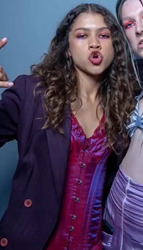
(Rue’s prom look).
For Rue, the exploration of expressing gender fluidity through her clothing choices was present throughout the entire season, but subtle. There was no direct mention of the matter until the season finale. While selecting a very feminine outfit for Rue to wear to prom, Jules expresses concern for possibly altering Rue’s gender presentation. I believe that by staying in the dress for prom, and not changing into something more fitting of her stylistic history, Rue was trying to validate her trust and relationship with Jules. In this scene, Rue had let Jules pick out her prom look and rather than opting for something similar to her previous fashion choices, Jules put her in a tight and sultry, lingerie-inspired, corseted, maroon dress. The color choice of maroon was not only fitting to the color pallet of the show, but was also distinctly similar to the color of Rue’s father’s sweatshirt, which she wears daily after he passes away. This choice I believe was unintentional from Jules, but subconsciously reminds the audience of Rue’s inability to move past that time in her life. Rue also adorned a traditional men’s suit pants and coat. This is the key part in her maintenance of gender fluidity and ambiguity within the outfit. The color choice was subtle and reflective of how natural this “tomboy” style has come to her self-expression. The choice of Converse was also only visibly present for a few moments on screen, but the shoes came to represent so much within Rue’s life. So much so in fact that the actress who played her character, Zendaya, made an Instagram post paying respect to the life they lived in the show with “I’m gonna have to get some new chucks for my personal life… I guess I’ll just have them on standby for season2. Til then Rue Rue” (Zendaya, 2019). Rue initially allowed Jules to change her gender presentation via the use of a frilly dress, but later came to regret the decision, as the dress became representational of their constricting relationship. This outfit represented the fluidity of expression and the intimacy that can be shared through clothing choice.

(Jules’s prom look).
Rue’s romantic counterpart, Jules, quickly became a stand-out character on the show due to her extravagant, stylistic choices within the first few episodes, and her makeup has inspired countless other artists’ renditions of the now iconic looks. For her prom look she wore a silky lilac crop top and similarly silky lavender high-waisted wide-leg pants. To top off the look she also adorned herself with a beautiful, almost floor-length, sheer mesh, forest green, trench piece. On the back of the sheer coat was a beaded symbol for the transgender community. The entire outfit was quite the statement, but I got the feeling that she was going for that “I’m not trying, but I tried really hard to look like I’m not trying” look. Due to the casual nature of a crop top and pant combo, the pieces seem haphazardly thrown together. However, the perfect complementary colors, and the identical silky fabrics make that lackadaisical approach almost impossible. I think it is also important to mention that the outfit as a whole read a little mermaid-y. To the untrained eye this might have gone completely unnoticed, but to someone with a recent history in Women and Gender studies, namely me, this reference was another direct tie to the trans community. Popularized by the television show Life With Jazz, mermaids have become an almost superhero-like figure for many people within the trans community, and now serve as a symbol of recognition. In an interview the star spoke on their significance, “Mermaids are just the most whimsical, mystical creatures of all time. A lot of transgender individuals are attracted to mermaids and I think it’s because they don’t have any genitals, just a beautiful tail” (Jennings, 2015). Jules continued to wave her pride flag high and exuded confidence. She held the message of being proud of whoever you are.

(Kat’s prom look).
Kat, a plus-size girl surrounded by a sample-size school, went through many changes this season. After her first-time having sex not only gets recorded, but also then is virally leaked throughout campus, Kat decided to reclaim control of her body. Kat had the edgier version of the “Pretty Woman” makeover. With an entire new wardrobe of bondage-inspired pieces, sexy black and red lingerie, latex, leather, and laces, she conquered not only her sexuality but also gained a whole new world of confidence as well. Throughout this journey, she also struggled with the duality of being a grade-A bad ass and still navigating soft and cute teen romance. For her prom look she wore all red, the color most symbolic for both power and romance. With a red leather corset on top and red silk midi skirt on the bottom, she exuded confidence as a woman in control of her own body. The black lace-up detailing that became a motif in many of her previous outfits also made a cameo in the prom episode running through both the top and the skirt. These specific choices show her character’s development of self-confidence. In the beginning, she was self-conscious and afraid of intimacy, but as the season progressed, the audience was able to see her blossoming into a woman in charge. She was able to reclaim her body after the sex-tape scandal and make a name for herself by camming on PornHub, and also by gaining enough appreciation for herself to see her love for Ethan. Kat struggled with coming into herself as a sexual woman and in her final look is able to show that you can be strong and confident and still express emotion and love.

(Maddy’s prom look).
Maddy, Maddy, Maddy. Where do I even start? Without a doubt Maddy was the most confident female character on the show, but when her boyfriend abused her at the annual carnival she began to break down. Although she was aware his actions were brutally wrong, she forgave him, like a story of Stockholm syndrome. Following his release back into school, they reappeared as a couple only to break up again in the following episode. Their relationship was undeniably toxic. At prom Maddy went with her group of girlfriends, surrounding herself with positivity and love. She wore a see-through black, crystal embedded, two-piece halter top and form-fitting skirt. She also wore a veil. Maddy shone bright on the dance floor and conveyed the message that relationships aren’t everything, and in the end all she needed was support from her friends, self-love, and some serious distance from her abusive ex-boyfriend, Nate. Maddy loves herself, but by ignoring her case of domestic violence she lost a part of herself. Luckily, in the finale, Maddy surrounds herself with good friends and shows that self-worth and self-love are important and still sexy.
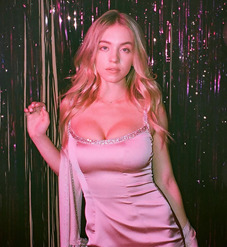
(Cassie’s prom look).
Cassie’s prom look showed less of a character arc than the others, but her message remained just as pungent. On the day of prom, Cassie had gotten an abortion. The pregnancy was the unintended consequence of her boyfriend McKay. They came to the decision together, but Cassie made sure that the decision was ultimately her own. Needless to say, she was not dressed as her usual provocative self. She wore a soft pink satin gown, the most traditional of all the looks, and barely-there makeup, which according to the makeup artist was a distinctive choice given the earlier abortion. The makeup artist for the shoot took to Instagram to explain her look, “As much as I wanted to give Cassie a glittering euphoric winter formal makeup look, I didn’t feel like it would help tell her story in this moment. I wanted Cassie’s total absence of makeup here to signal to the audience that she’s reached the start of a new phase of her life…”(Davy, 2019). The neckline was still flattering but she remained quiet and pensive for the rest of the evening. In the same girl group as the others, Cassie took that day to surround herself with those who could support her without their knowledge of the previous event. Cassie’s prom look said that it is okay to not always be okay, and that expressing that is perfectly fine. This message can be gathered through her soft color pallet the contrasted the otherwise bright evening, the simplicity of the silhouette, and the unexpected lack of dark eyeshadow, a typical element of Cassie’s normal look.
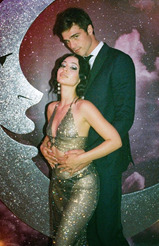
(Nate’s prom look).
I intentionally saved the worst for last: Nate. Nate’s look was boring, and quite frankly fell flat. It would have made more sense for him not to go at all, or maybe to show up in hand cuffs as he did for Halloween. But whatever, he did go to prom, and he did wear a suit. Given the extravagance of the rest of the characters’ prom looks, there was an unofficial standard for all the characters to express themselves creatively in some way for the event. However, I believe that Nate’s blatant lack of creativity is his statement. For his whole life he has been molded to become a superstar athlete, and at no point was he given the opportunity to outwardly express himself. We can thank both toxic and hegemonic masculinity for this lack of expression, for in their essence both of these ideas encourage the repression of emotion in boys and men. His outfit shows that when not given the opportunity to find oneself beyond the expectations of others, or not being able to to explore one’s own creative capabilities a person could become a drone, in this case one with severe anger issues. The suit further shows his acceptance and assimilation into the norms and expectations for his character. Rather than expressing himself through stylistic choices, like many of the other characters, Nate’s feelings come out in destruction and violence. He serves as a precautionary tale, of what the dangers of toxic and hegemonic masculinity can have on young men: crushing self- hatred. For many, fashion can serve as a critical outlet for self-expression. Especially for Euphoria’s teenage viewership, style can feel like the only controllable element of their life while the lack of adolescent autonomy is at its height.
As both a thoroughly engaged audience member and fan of Euphoria, there is not much the creators could have changed about the prom looks to further appease me. Throughout the entirety of the season I found that I was able to relate to every individual character within the show, admittedly even Nate. I was able to see my own life tied into bits and pieces of every character’s individual story. Maddy and Rue stuck out as the characters with which I had the most identification with, and although their characters are almost direct opposites in the show, I felt comfort in being able to compare their stories to my own. However, I feel that it is also important to acknowledge the lack of identification some of my peers felt with Euphoria’s main squad. Some have never had experiences with “hard-core” drugs, struggled with gender representation, bee involved with sex tape scandals, or instances of domestic violence, dealt with the after effects of an abortion, or emotional repression. For many of these people who struggled to find identification with the main characters, the supporting roles served as their substitute. With characters as Lexi, McKay, Gia and Fez, many other identities were explored throughout the season, although in lesser detail. I believe that if these supporting characters had also been given equal screen time, an even wider range of audiences would have been able to engage and identify with Euphoria. By digging deeper into their stories, new plot lines could have been uncovered. Many teenagers struggle with eating disorders, which were left out of the show despite alarming statistics claiming that at least 30 million people suffer from eating disorders in the United States (ANAD, 2019). Nicotine has become a significant outbreak in American teenagers with the Center for Disease Control reporting that “5.6 million of today’s Americans younger than 18 will die early from a smoking-related illness” (Centers for Disease Control and Prevention, 2019). And topics of bullying were also left unexplored by the show despite its constant prevalence in teenage society. Studies have even gone to show that “Bullying was a factor in 2/3 of the 37 school shootings reviewed by the US Secret Service” (Stop Bulling Now Foundation, 2019). However, including all of these topics could have been destructive to the season as a whole, and overwhelming to audiences. Given the relevancy of these topics, they are explored elsewhere in outer outlets. Euphoria was a show intended for people who had rarely seen their identities presented on mainstream media of this scale before. So, despite the few missing teenage issues that are more commonly explored today, Euphoria was able to uniquely cover some groundbreaking material for a show of its size.
Euphoria’s characters all held distinct messages within the show. Through the use of visual clothing cues Euphoria was able to further the identification factor of these stories by visually signaling their significance. Created out of a need for representative media and birthed into a world of social unrest, Euphoria became a breakout show on HBO’s streaming platform and now has the power to unify an entire generation. In “And Salt the Earth Behind You” Rue, Jules, Kat, Maddy, Cassie, and Nate give their final send off to the show by highlighting their completed respective messages between satin finishes and starchy, pressed suits. As a result of the creative expression of the prom outfits in the finale, viewers are left with a lasting impression of self-identification closing off the season.
References
Albakry, N. S., & Daimin, G. (2014). The visual rhetoric in public awareness print advertising toward Malaysia perceptive sociolculture design. Procedia-Social and Behavioral Sciences, 155, pp. 28-33.
ANAD. (2019). Eating disorder statistics. Retrieved from www.anad.org/education-and-awareness/about-eating-disorders/eating-disorders-statistics/.
Aspden, P. (2011, September 24). How HBO revolutionized television. Retrieved from www.slate.com/human-interest/2011/09/hbo-how-it-revolutionized-television.html
Burke, K. (1950). A rhetoric of motives. Berkley: University of California Press.
Cassie’s prom look [Digital image]. Retrieved from www.usa-grlk5lagedl.stackpathdns.com/production/usa/images/1565025651204007-66121653_654233518429076_5605336542765432610_n.jpg?w=1900&fit=crop&crop=faces&fm=pjpg&auto=compress.
Centers for Disease Control and Prevention. (2010, June 3). CDC survey finds that 1 in 5 U.S. high school students have abused prescription drugs. Retrieved from www.cdc.gov/media/pressrel/2010/r100603.htm.
Centers for Disease Control and Prevention. (2019). Youth and tobacco use. Retrieved from www.cdc.gov/tobacco/data_statistics/fact_sheets/youth_data/tobacco_use/index.htm.
Chen, E. (2019, June 6). In praise of euphoria, the perfect anti-binge TV show. Retrieved from www.wired.com/story/euphoria-anti-binge/.
Chuba, K. (2019, June 5). 'Euphoria' creator on authentic trans portrayals, mining "deeply personal" history to tackle teen drug abuse. Retrieved October 21, 2019, from www.hollywoodreporter.com/live-feed/euphoria-creator-mining-deeply-personal-history-tackle-teen-drug-abuse-1215844.
Davy, D. [@donni.davy]. (2019, August 17). Cassie’s clean slate, episode 8, euphoria [Instagram photo]. Retrevied from www.instagram.com/p/B1SOb1EJcve/?igshid=ork83uq4xhn.
Foss, S, K. (1994). A rhetorical schema for the evaluation of visual imagery. Communication Studies, 45, pp. 213-224.
Jennings, J. (2015, June 8). Jazz Jennings: the transgender teen and wannabe mermaid the internet needs (M. Ruiz, Interviewer). Cosmopolitan. Retrieved from www.cosmopolitan.com/entertainment/tv/a40068/jazz-jennings-internets-most-fascinating/.
Jules’s prom look [Digital image]. Retrieved from www.usa-grlk5lagedl.stackpathdns.com/production/usa/images/1565024720966459-66659243_159635475163665_1587604092859566839_n.jpg?w=1900&fit=crop&crop=faces&fm=pjpg&auto=compress.
Kat’s prom look [Digital image]. Retrieved from www.usa-grlk5lagedl.stackpathdns.com/production/usa/images/1565025241108497-67911105_2343940372514856_2058399465206680217_n.jpg?w=1900&fit=crop&crop=faces&fm=pjpg&auto=compress.
Kolodziejski, L. (2019, October 16). Pentadic criticism overview [PowerPoint Presentation]. Retrieved from handout sheet.
Kolodziejski, L. (2019, October 23). Visual rhetoric criticism overview [In-class handout]. Retrieved from handout sheet.
Maddy’s prom look [digital image]. Retrieved from www.usa-grlk5lagedl.stackpathdns.com/production/usa/images/1565024910235630-66213364_669264316881864_5463572260054969293_n.jpg?w=1900&fit=crop&crop=faces&fm=pjpg&auto=compress.
Nate’s prom look [Digital image]. Retrieved from www.data.whicdn.com/images/334716009/original.jpg
Nissen, D. (2019, June 6). 'Euphoria' creator sam levinson opens up about drug addiction at premiere. Retrieved October 20, 2019, from www.variety.com/2019/scene/news/euphoria-creator-sam-levinson-opens-up-drug-addiction-1203233881/.
Rue’s prom look [Digital image]. Retrieved from www.i.pinimg.com/originals/01/2f/1d/012f1d3dc6e81ba8e9d1ef7f4970d064.jpg
Stack, T. (2019, June 16). 'Euphoria' creator on why it's okay that some people are 'freaked out' by his controversial new show. Retrieved October 20, 2019, from www.ew.com/tv/2019/06/16/euphoria-creator-sam-levinson/.
Stop Bullying Now Foundation. (2019). School bullying affects us all. Retrieved from www.stopbullyingnowfoundation.org/main/.
Zendaya [@zendaya]. (2019, August 24). Thanks to season 1 [Instagram story post]. Retrieved from www.google.com/amo/s/amp.redit.com/r/euphoria/comments/cuyynl/from_zendayas_ig_story_who_knew_a_pair_of_chucks/.
1 note
·
View note
Text
Breakdown: Ookiku Furikabutte (Big Windup or Oofuri)
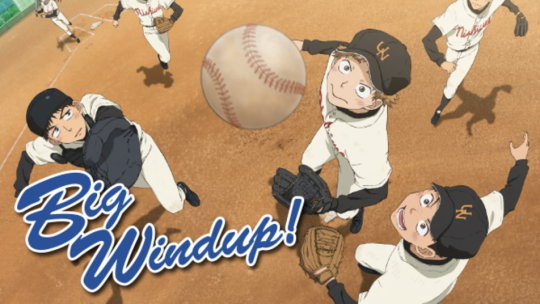
SPOILER FREE
Big Windup: High school baseball anime (studio is A-1 Pictures) and manga (Asa Higuchi), ongoing.
Production: Solid. Production IG and Madhouse still dominate in terms of quality, but A-1 is sure as hell head and shoulders above the clusterfuck team that did Eyeshield (which was a combo of TV Tokyo, NAS, and Gallop).
Tropes: Low Self-Esteem Hero, Fudanshi Bait, “I Will Make You A Hero”, Slice Of Life
Not-Your-Wikipedia-Summary: Ren Mihashi is a total wuss because his middle school baseball team utterly destroyed his self confidence. They always lost because the catcher never knew how to use Mihashi’s insane ball control to their advantage. Now Mihashi is in high school and a nervous wreck and joins the baseball team. The catcher, Takaya Abe, (voiced by the extremely talented and easy-to-pick-out Yuichi Nakamura), sees Mihashi’s potential and decides he’s going to make Mihashi into the best damn ace that’ll take them all to Koushien. Cue slow-paced, feel-good, team-coming-together-against-the-odds
TL;DR Review: It’s cute. It’s low stress. If you want to watch the friendship between boys be pushed and pulled and strained and celebrated all in the frame of high school baseball, and if you want that satisfaction that comes from a low-self-esteem hero showing everyone up, it’s a fun trip. Yes, all the character blush too much and the queer baiting between several characters is so obvious it borders on fetishization. But it’s not a bad thing to have different kinds of boys represented: scared boys, crying boys, boys who aren’t sure of themselves but are teaming up to try their best. We need to show that no matter what kind of person you are, you’re still a valuable part of the team.
"Objective” Score: 6/10 (for those who like/need a slow pace and can overlook the problematic coach [more below])
Personal Score: 4/10 (too queer baity [make it gay or don’t, just stop with the fucking baiting], too slow, too problematic with the coach character)
Full Thoughts: So it’s been awhile since I watched this series. After watching One Outs I thought I’d go watch its exact opposite while still in the baseball genre. I have to say, it didn’t really age on me well. I think it’s a good series for 13-15 year-olds. It has all that blushing queer baiting that, if you’re in the closet or still figuring yourself out, might be tantalizingly close to validation. Also, like I said above, it’s great to see boys who aren’t chock full of toxic masculinity. You can be a scaredy cat and still be a good athlete. It has enough humor and embarrassed-youth moments to make it relatable/more dramatic for younger viewers or those who are still capable of being embarrassed. For those of us who are older/cynical/naturally-prone-to-being-an-asshole, watching it is more irritating than anything else.
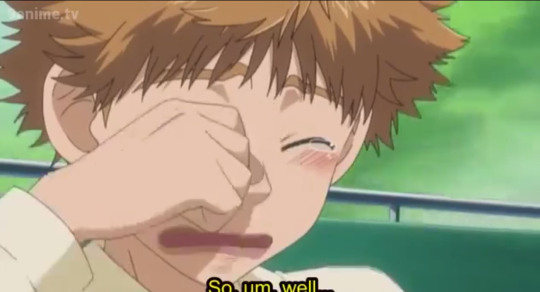
But let’s talk about something else...
Author Insertion Characters: Now, let me make it clear at the outset that this is NOT limited to female authors/creators. Pretty much every series has The Inserted Author, and more often than not it’s the protagonist. This is especially apparent where there are multiple female characters all in love with one boring ass dude. But what about when the Inserted Author isn’t the protagonist? What about when they’re a side character who is vicariously enjoying some exploitative scene? Usually, with male authors, we get side male characters who “happen to” see panty shots, etc. They’re so common to any series that they hardly need mentioning. I admit, I don’t even mention it, I’m so used to it; I just roll my eyes and watch on. But in the case of Oofuri, we get the team’s coach, Momoe. As soon as I saw her, I knew the series had been written/drawn by a woman, in good ways and bad. She’s got big boobs, has a strong personality, and the team is intimidated by her insane baseball skills and general strength. If she’d been written by a man, the team would’ve been drooling over her big breasts and there would have been a nonstop “comedic” tension over how sexy she was. But she’s not sexualized in any way. For that, I'm super grateful. (The bar is low for my gratitude, I admit.)
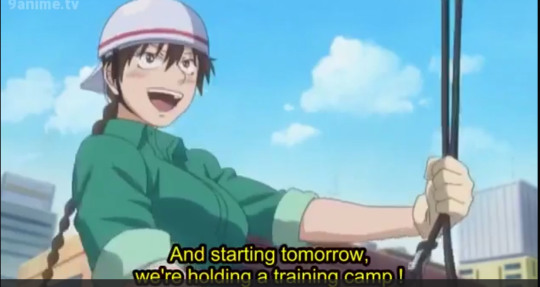
But there’s a couple of things about her that threw major red flags for me: one, that it’s made clear that she pours all of her money into this boy’s baseball team. Now, she’s a woman with insane baseball skills and a clear passion for the game. So why the fuck didn’t she start a GIRL’S softball team? They don’t even cover it, as if it’s not even a real question. And why is she pouring all of her everything into serving these young boy’s needs? Talk about gender role stereotypes. Why isn’t the school providing funds for all this equipment? Or if not, why aren’t they finding a way, as a TEAM, to raise funds for it? Why is she, the only woman on it, pouring all of her money into it? That’s one red flag. The other red flag basically answers all of those questions and can be seen below:
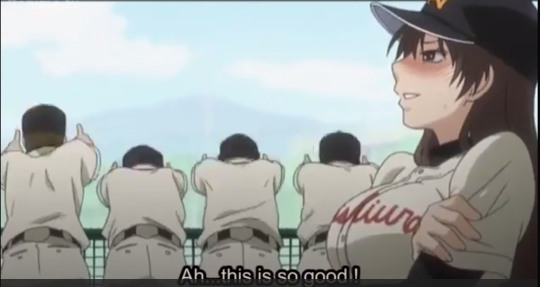
I’m sorry, is that woman orgasming over team bonding between adolescent boys? If you don’t have a problem with the above screenshot, if your brain is saying some shit like “but no, it’s pure! Because she’s a woman! And they’re boys!” then I want you to do a mental experiment: imagine that screenshot above with the genders switched. So an older man is clutching himself, blushing and sweating like that, saying “this is so good” behind the backs of a bunch of oblivious 14/15-yo girls. Is your mental reaction a little different? Good. Now readjust your previous opinion. This answers the question of why she’s coaching a boy’s team. Because the author wanted to vicariously jill off on the emotional bonding between young boys, all under the excuse of the Female Purity Myth. What am I talking about? It’s the pervasive idea that women can’t be sexual/perverted. That womanhood somehow makes women “naturally” pure. This is damaging to men and women: To women because we’re shamed when we ARE sexual beings (which is a one sentence understatement of a very complicated issue), and to men/boys who are sexually abused by women but feel that they can’t come forward about it.
So. I’m conflicted. I like her character because SHE isn’t sexualized... but I’m angered by how the series validates the fetishization of queer relationships between boys by older women. I’d rather watch a series that has no female characters than a series that has one who is this problematic. I’ll be passing on re-watching any more of this.
#Big Windup#ookiku furikabutte#oofuri#Asa Higuchi#Author insertion character#Low Self Esteem Hero#anime review#sports anime#breakdown#queer baiting#a-1 pictures#6/10#fudonshi#ren mihashi#abe takaya#Maria Momoe
5 notes
·
View notes